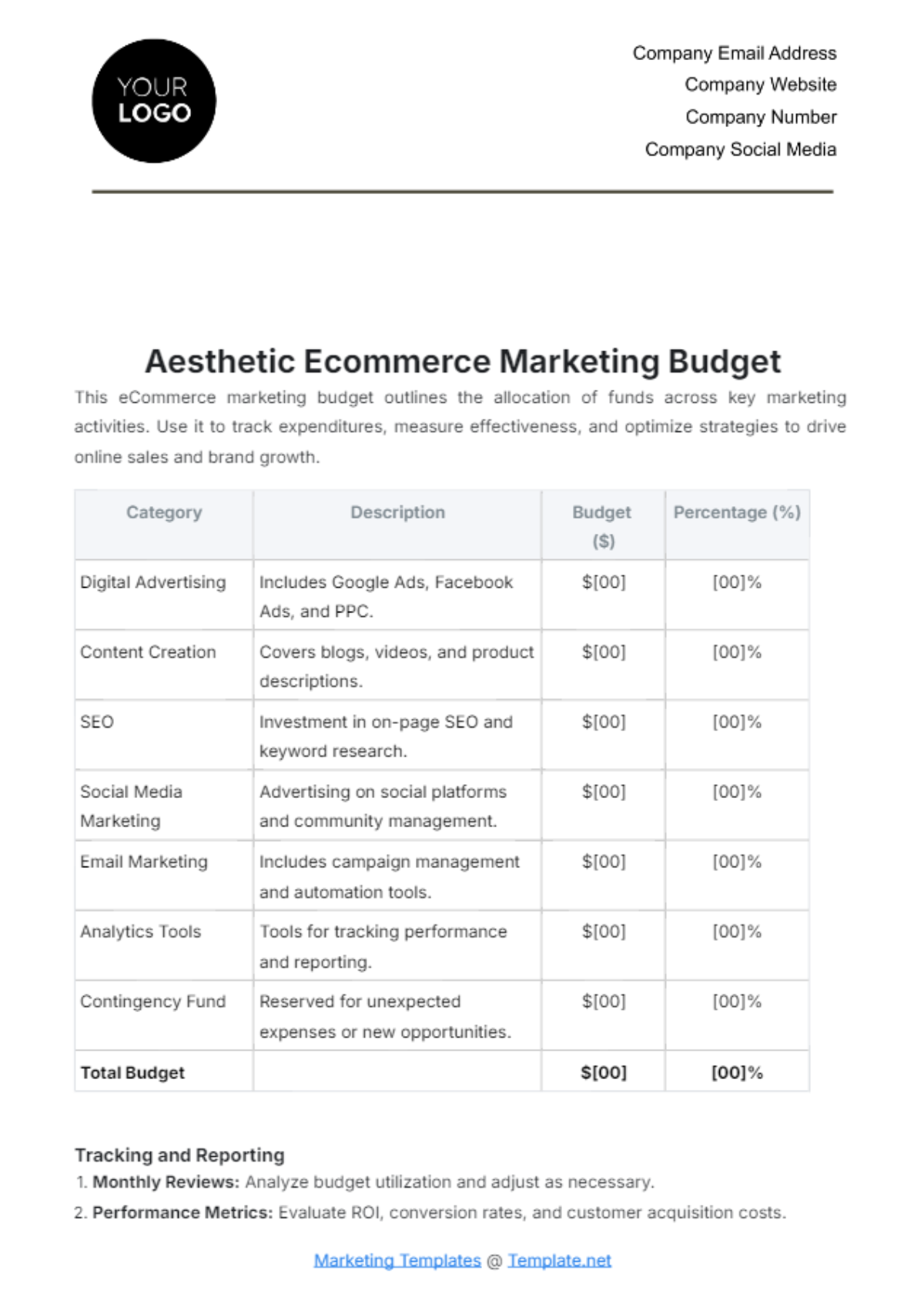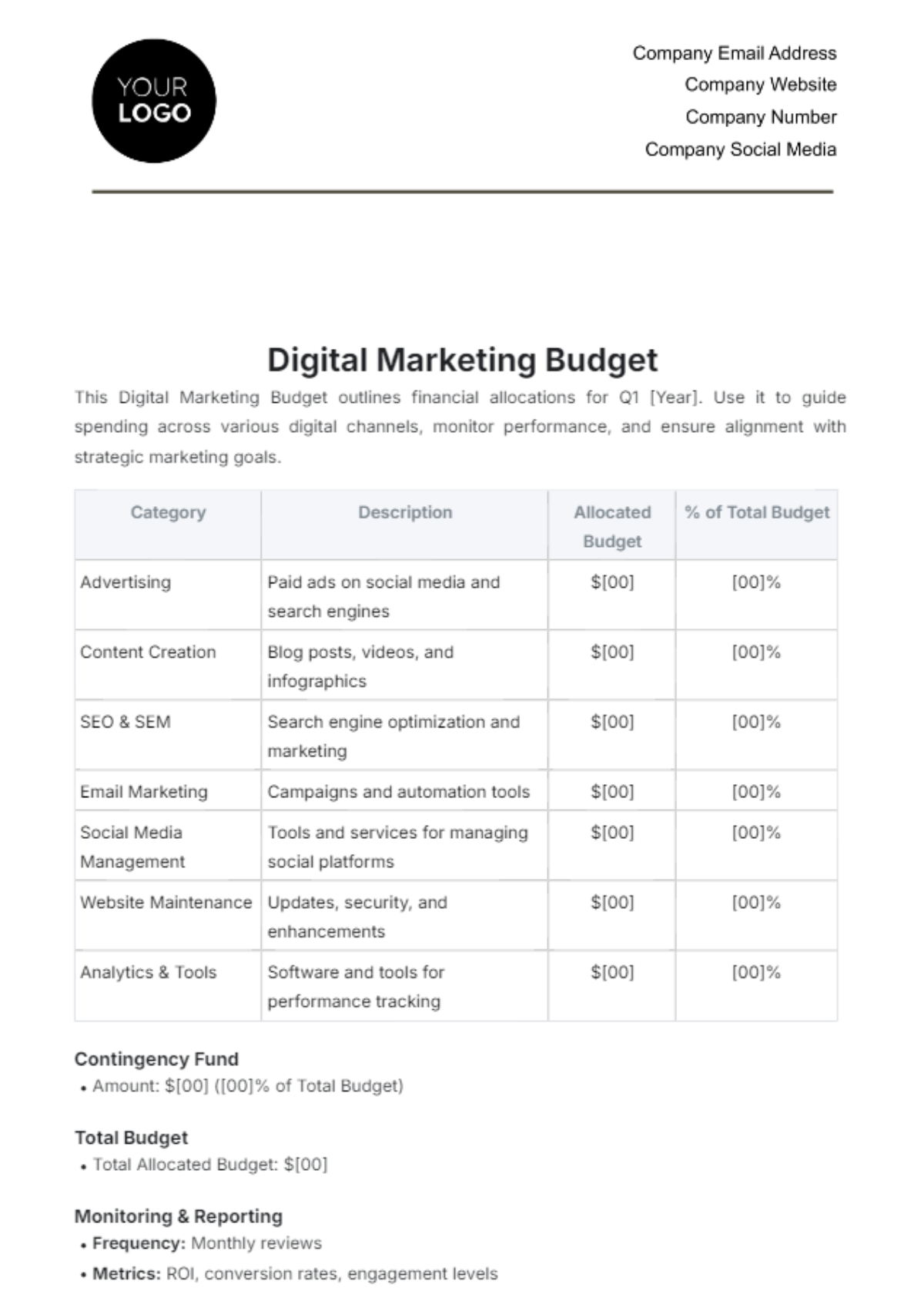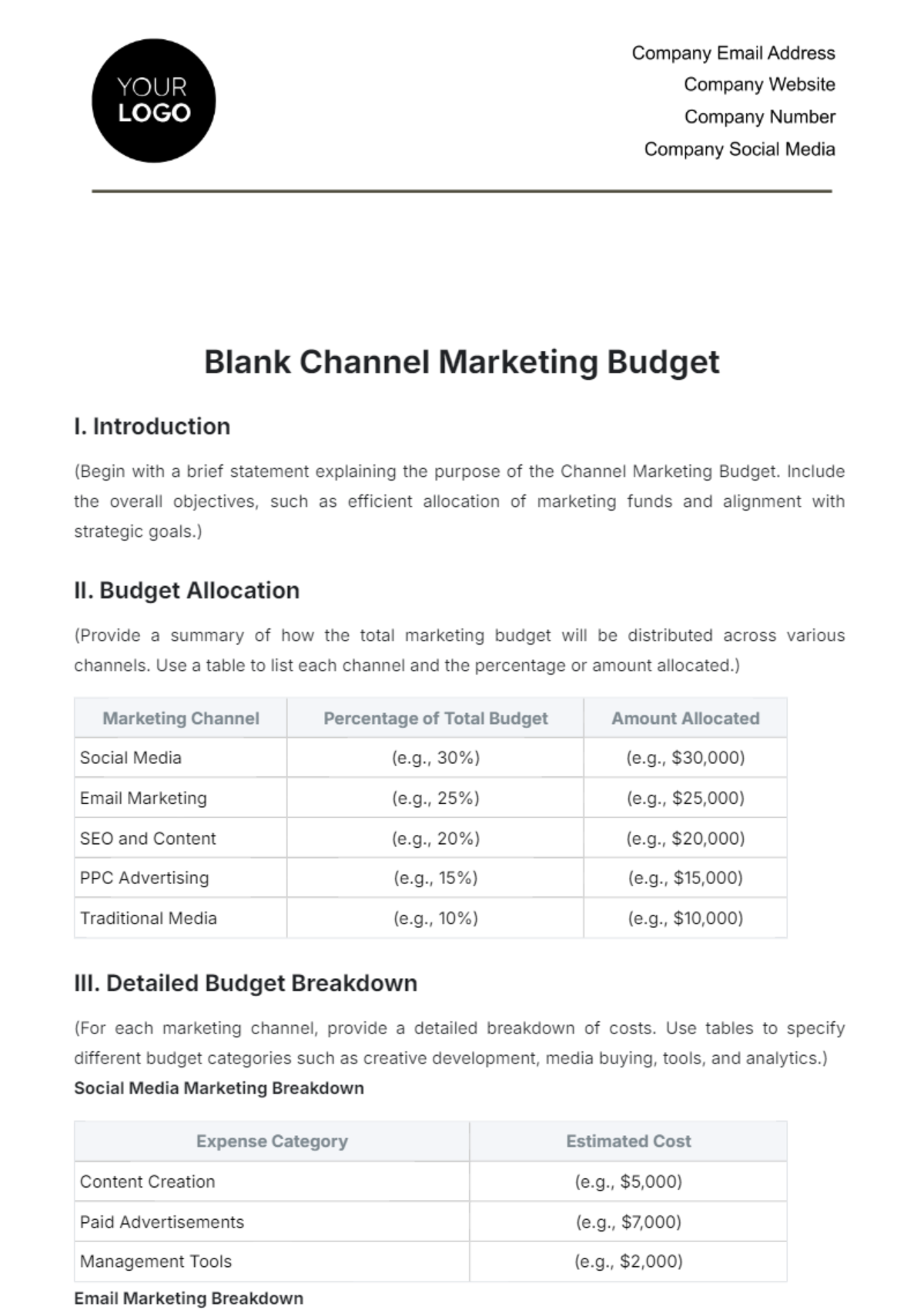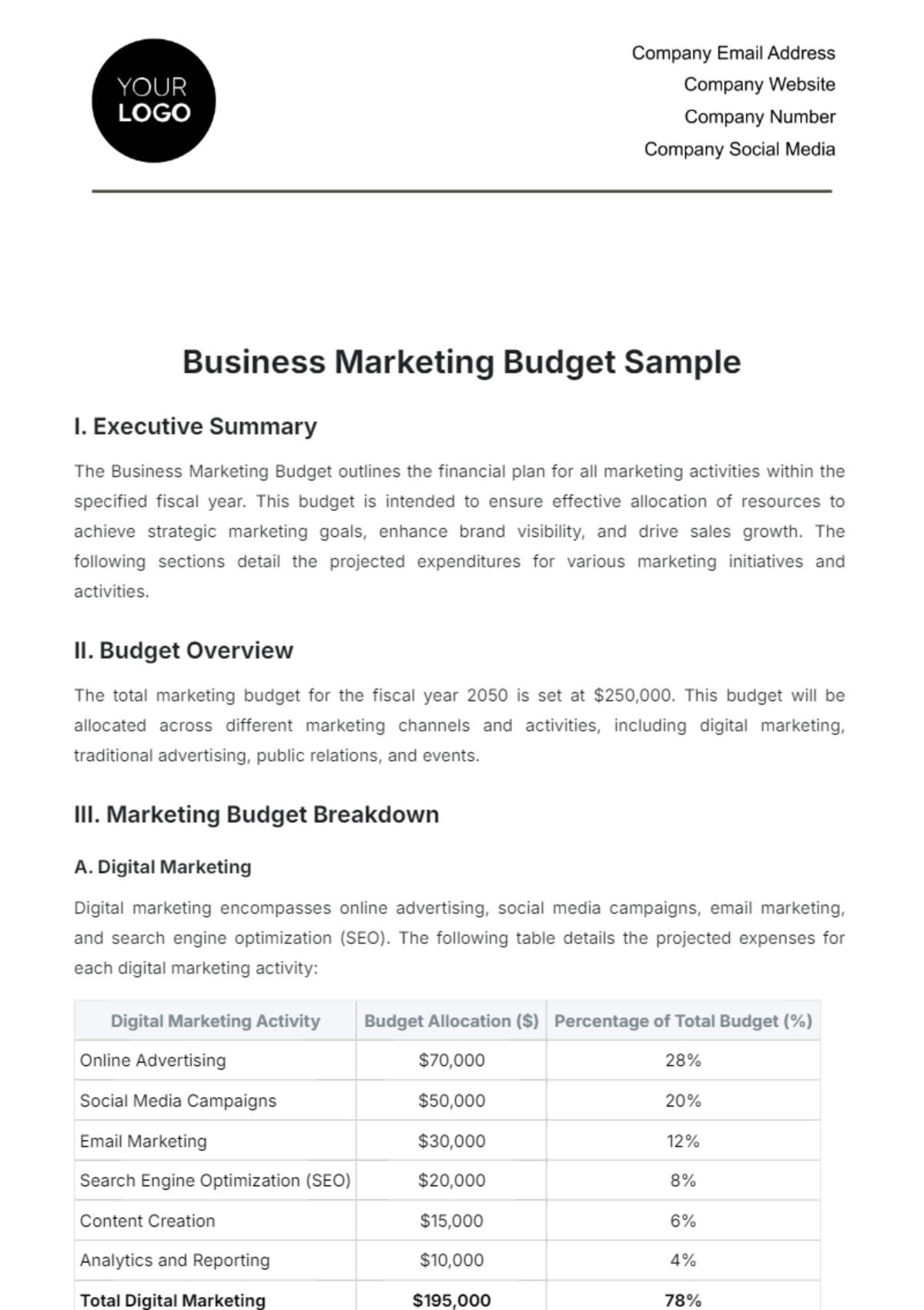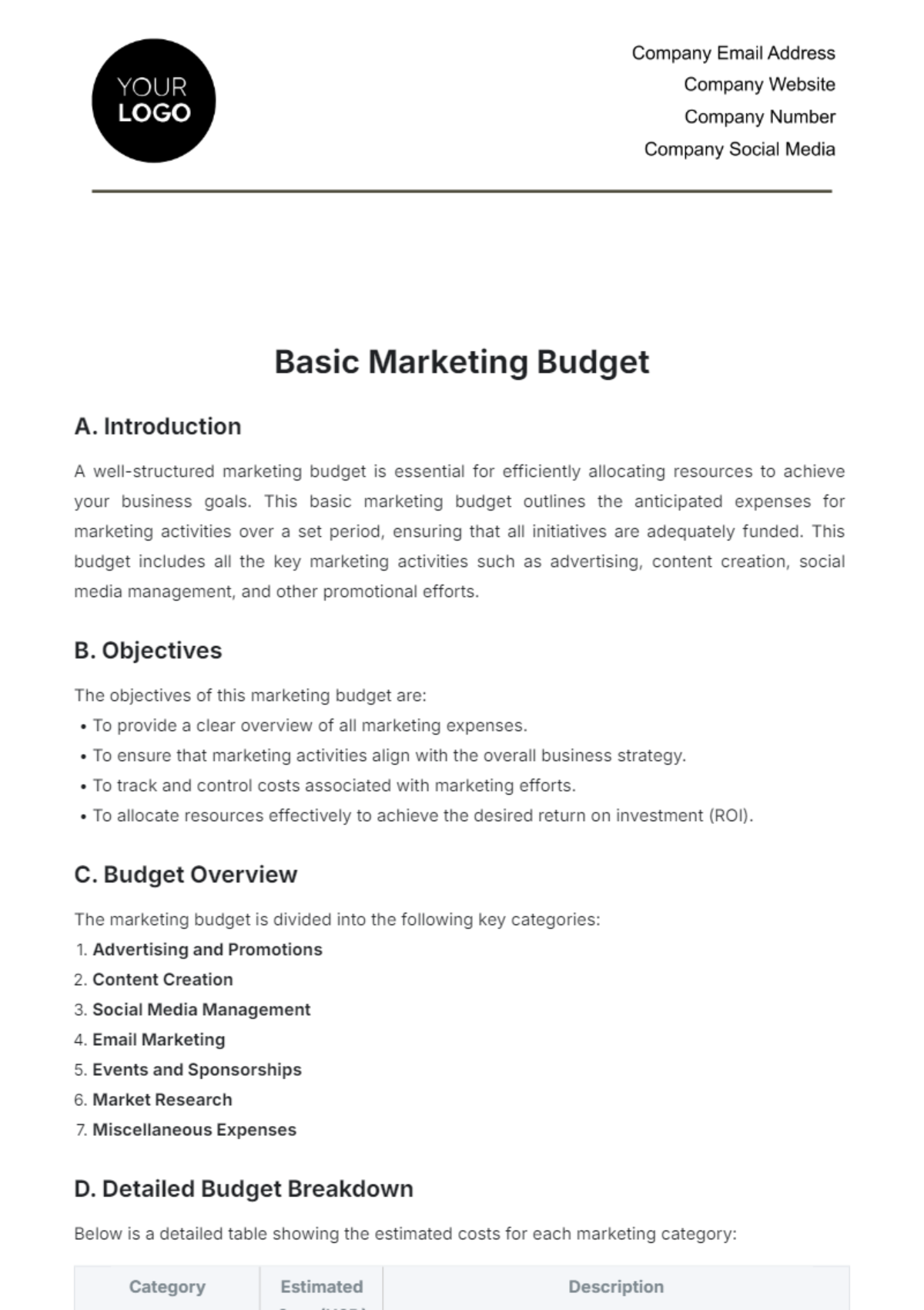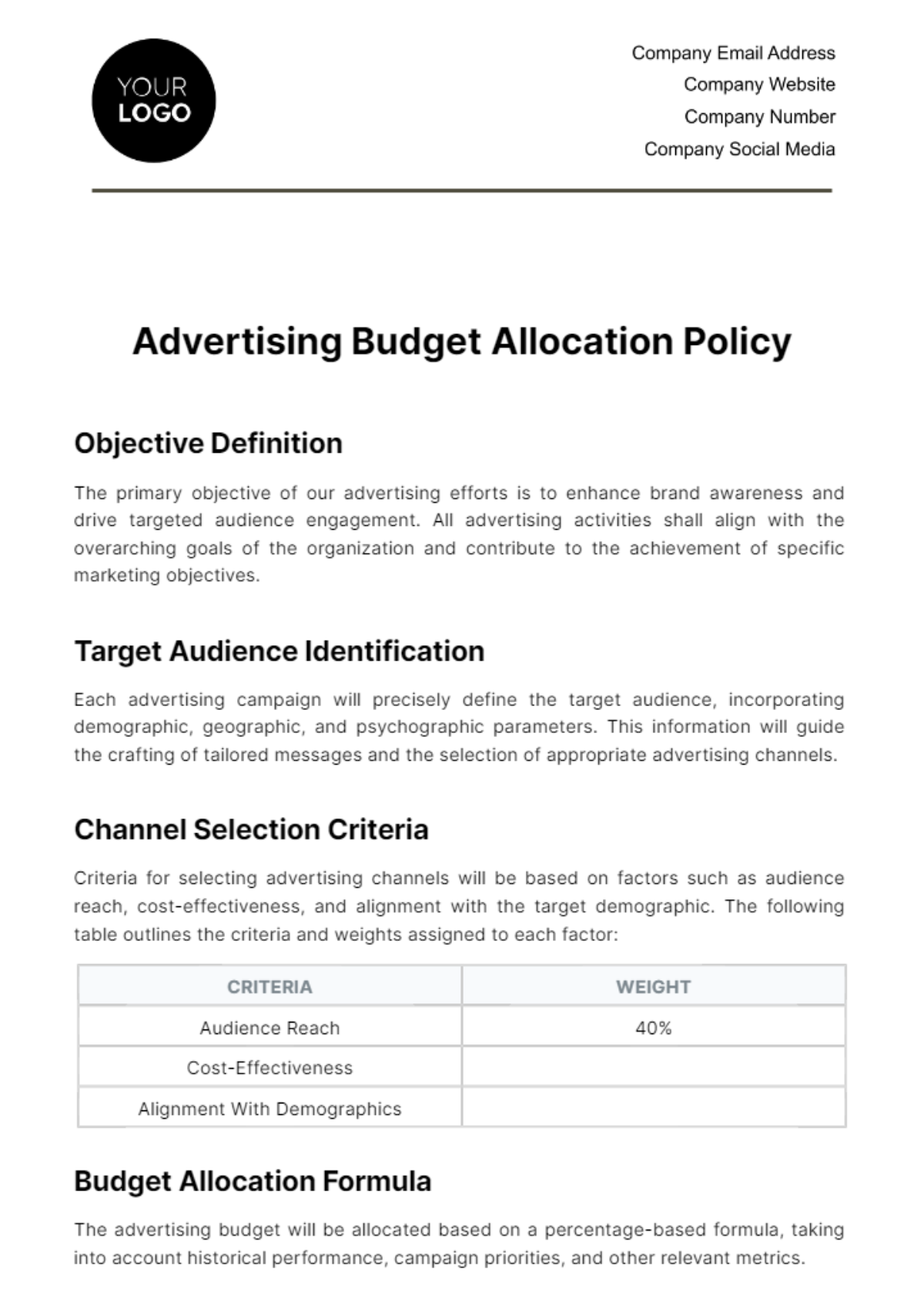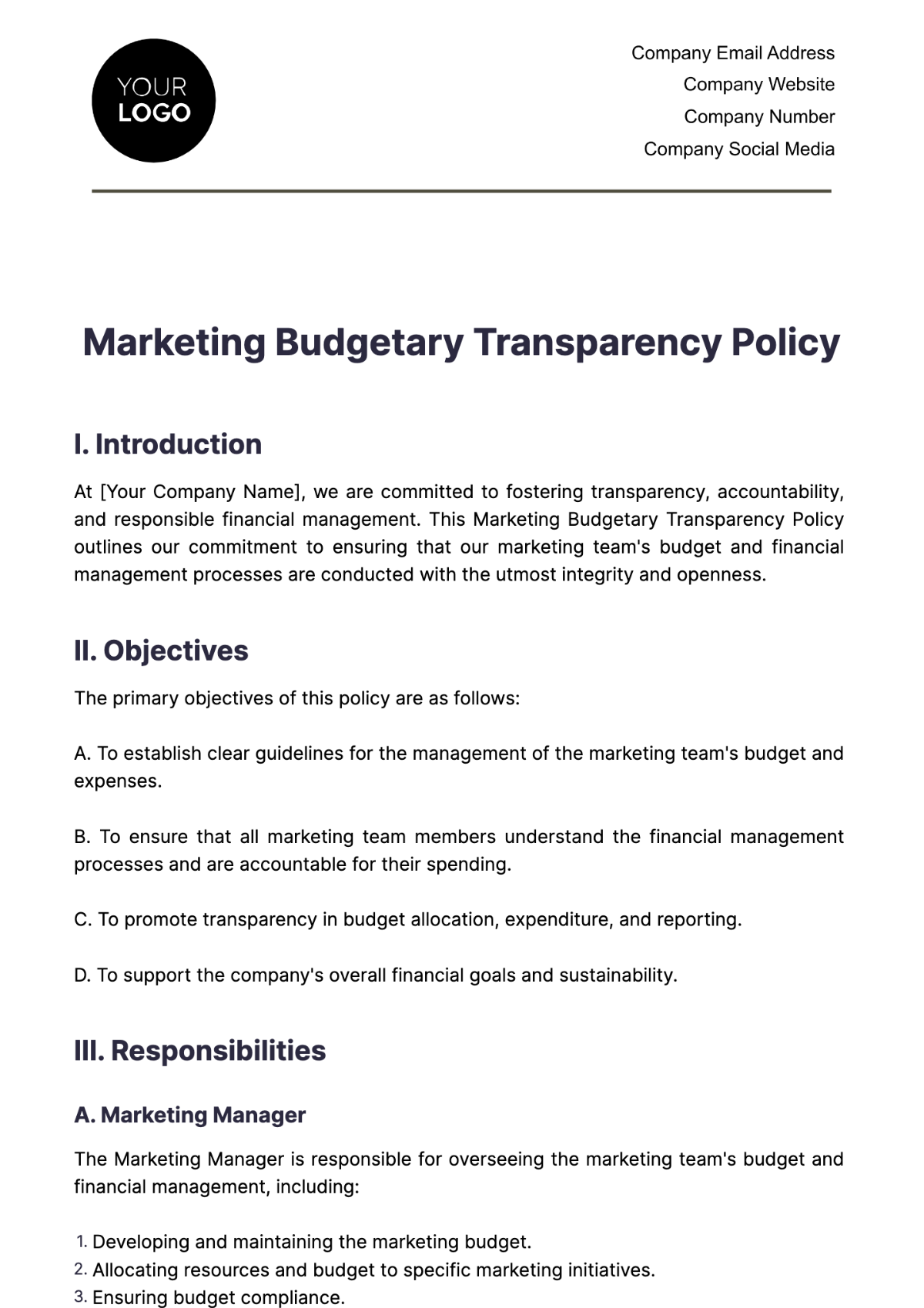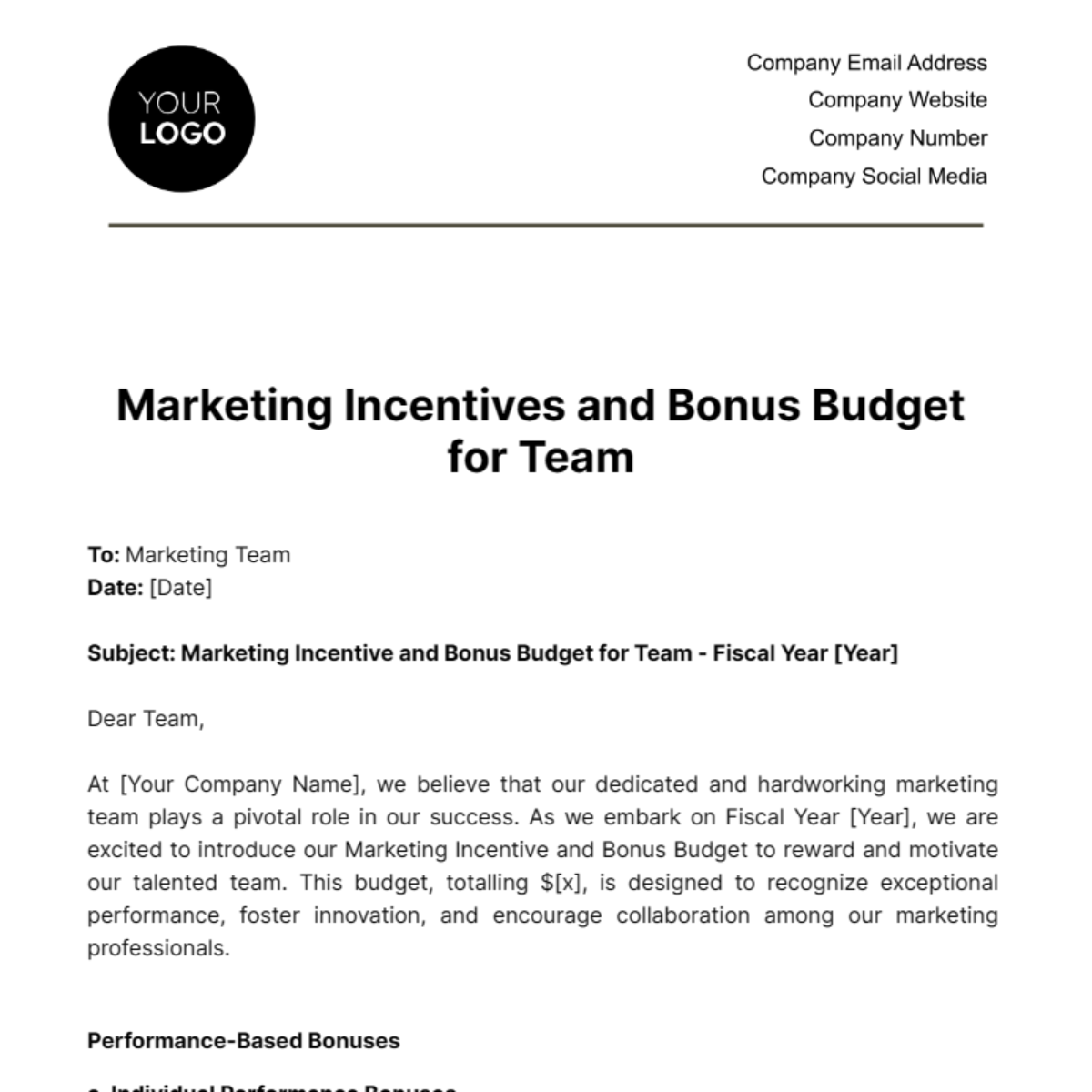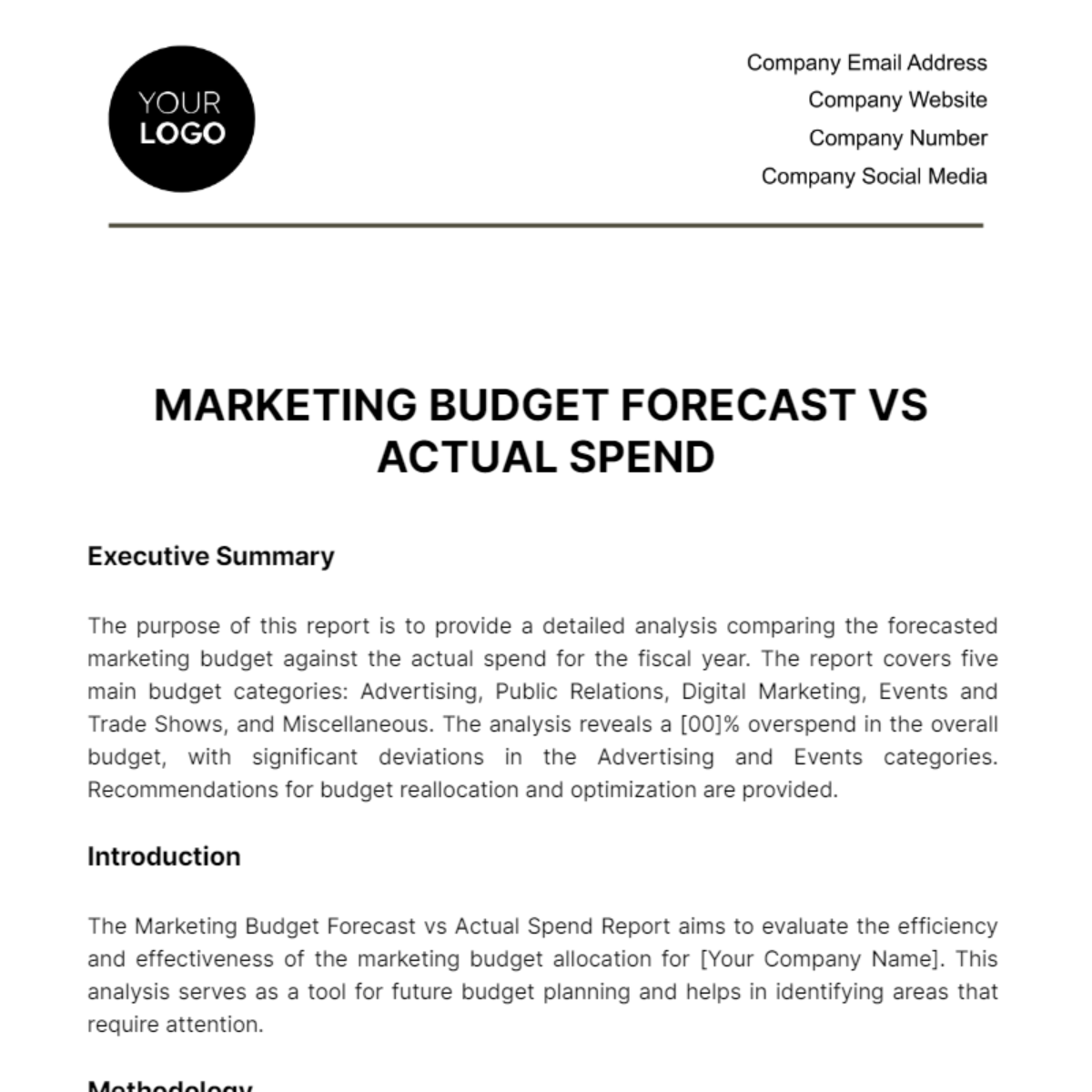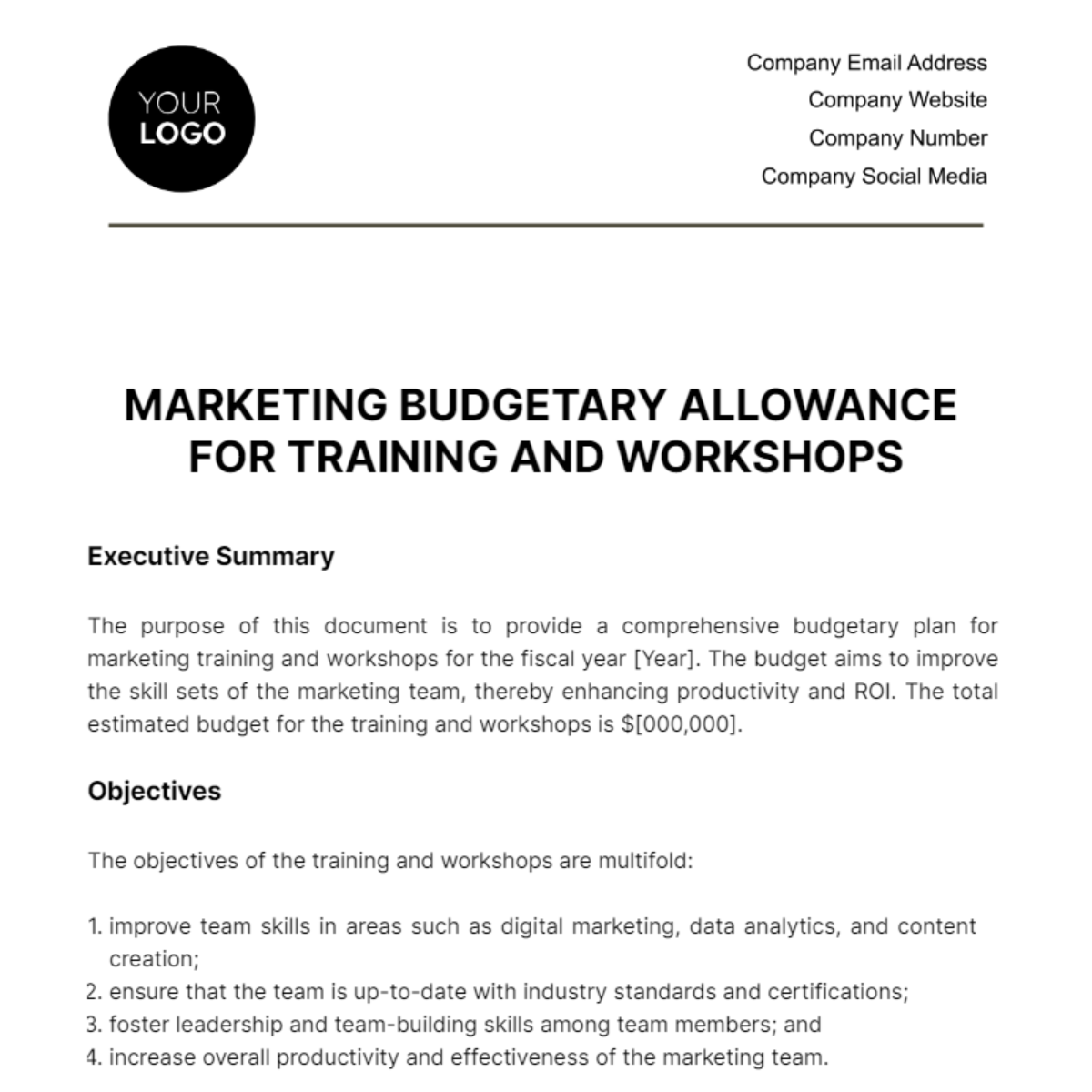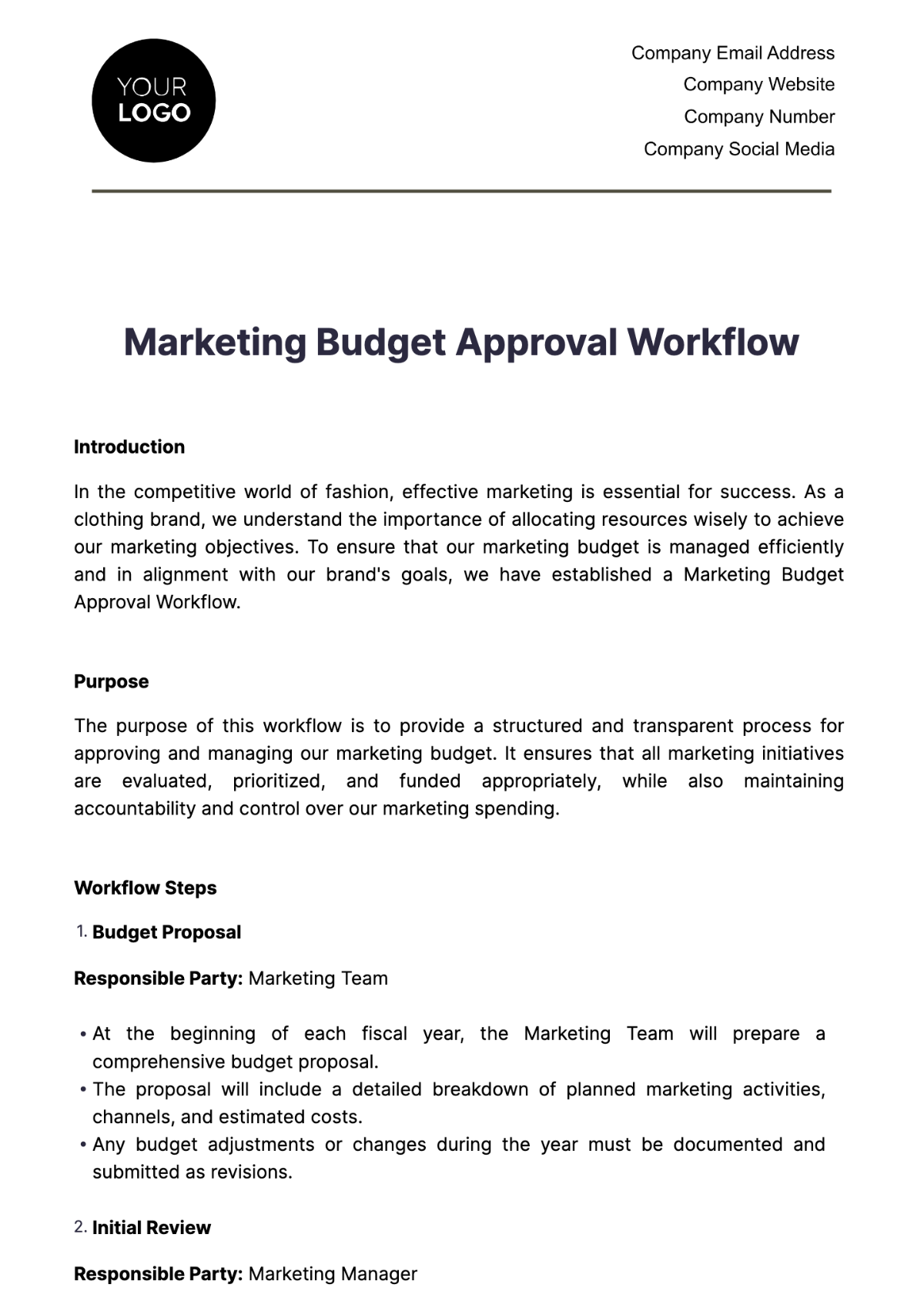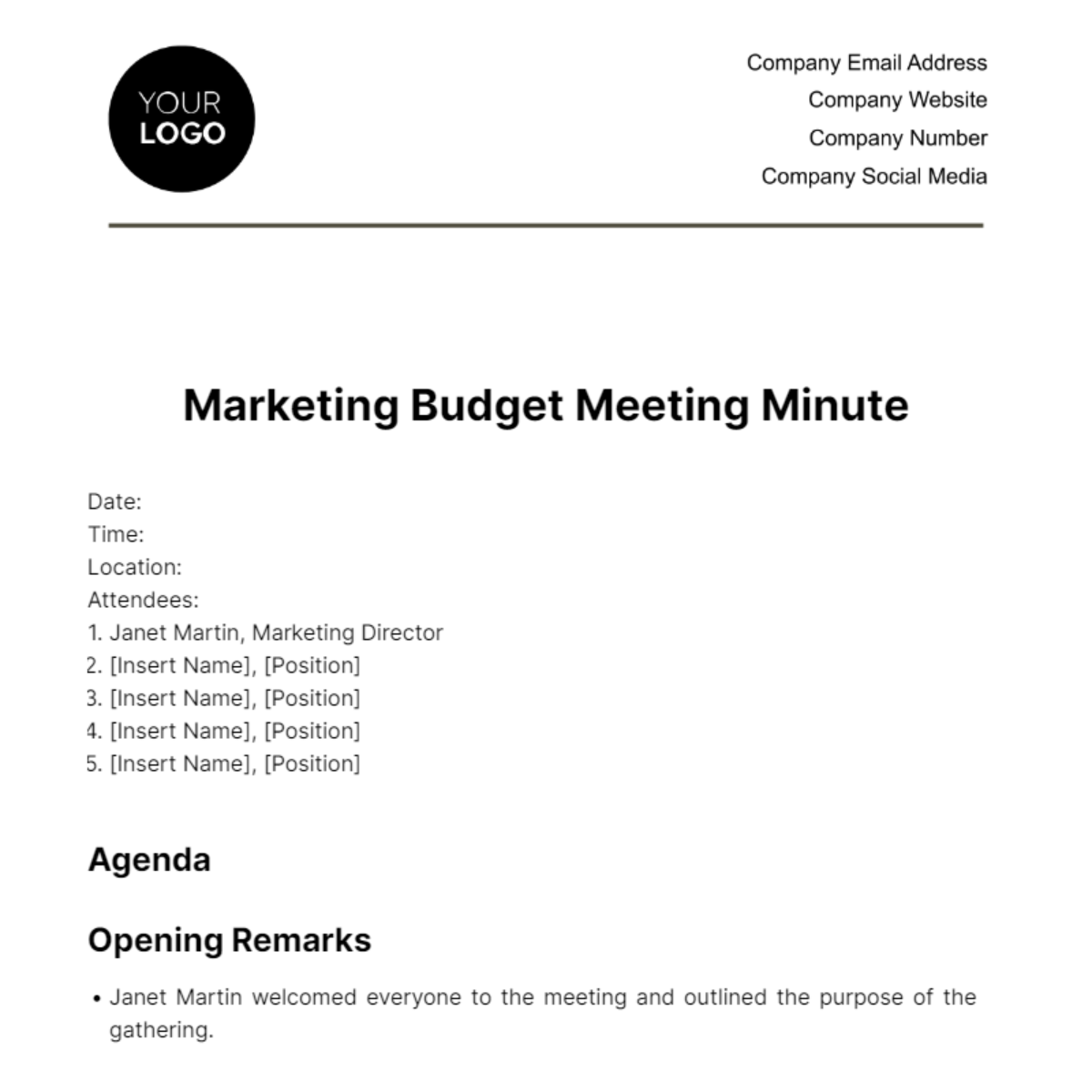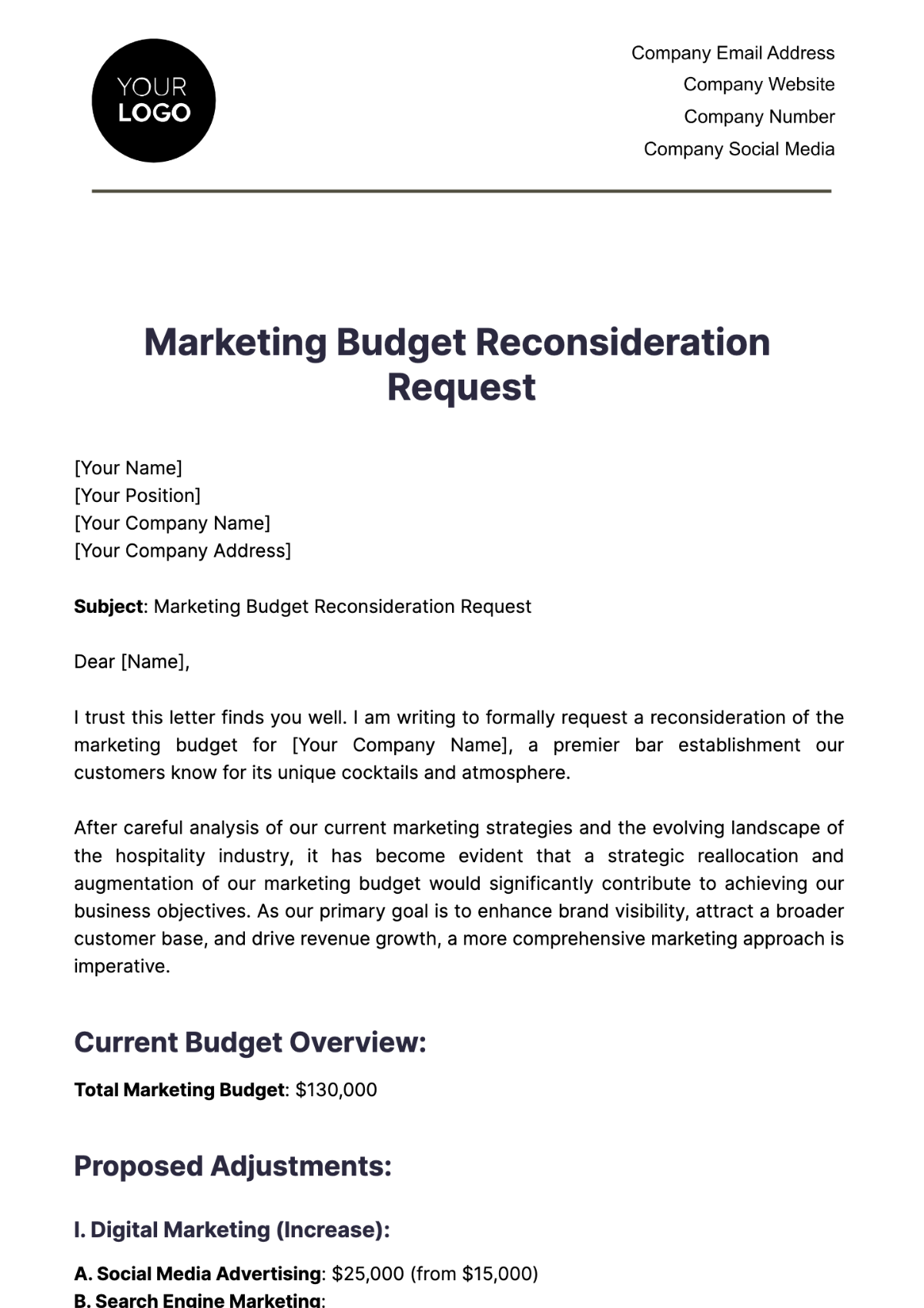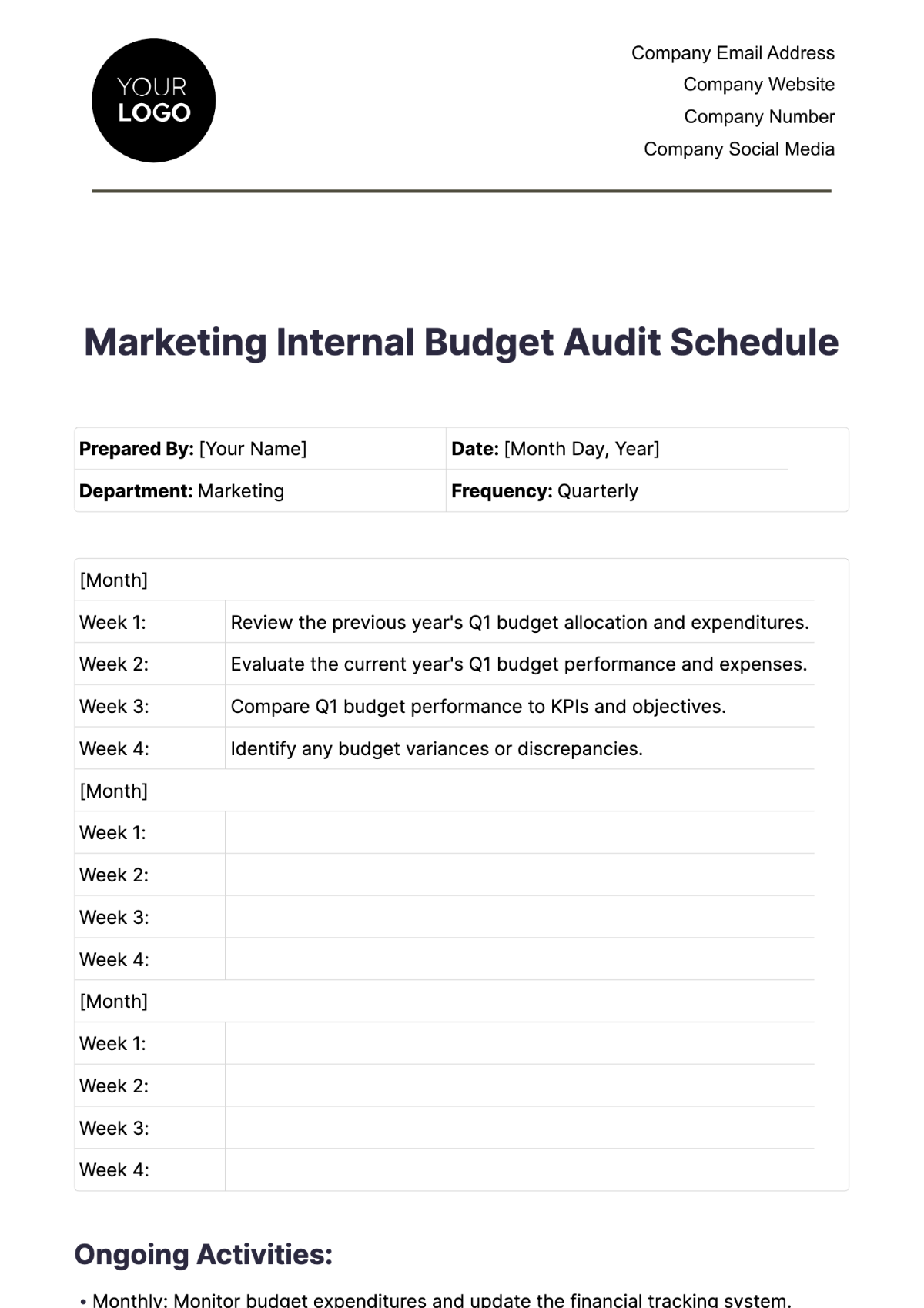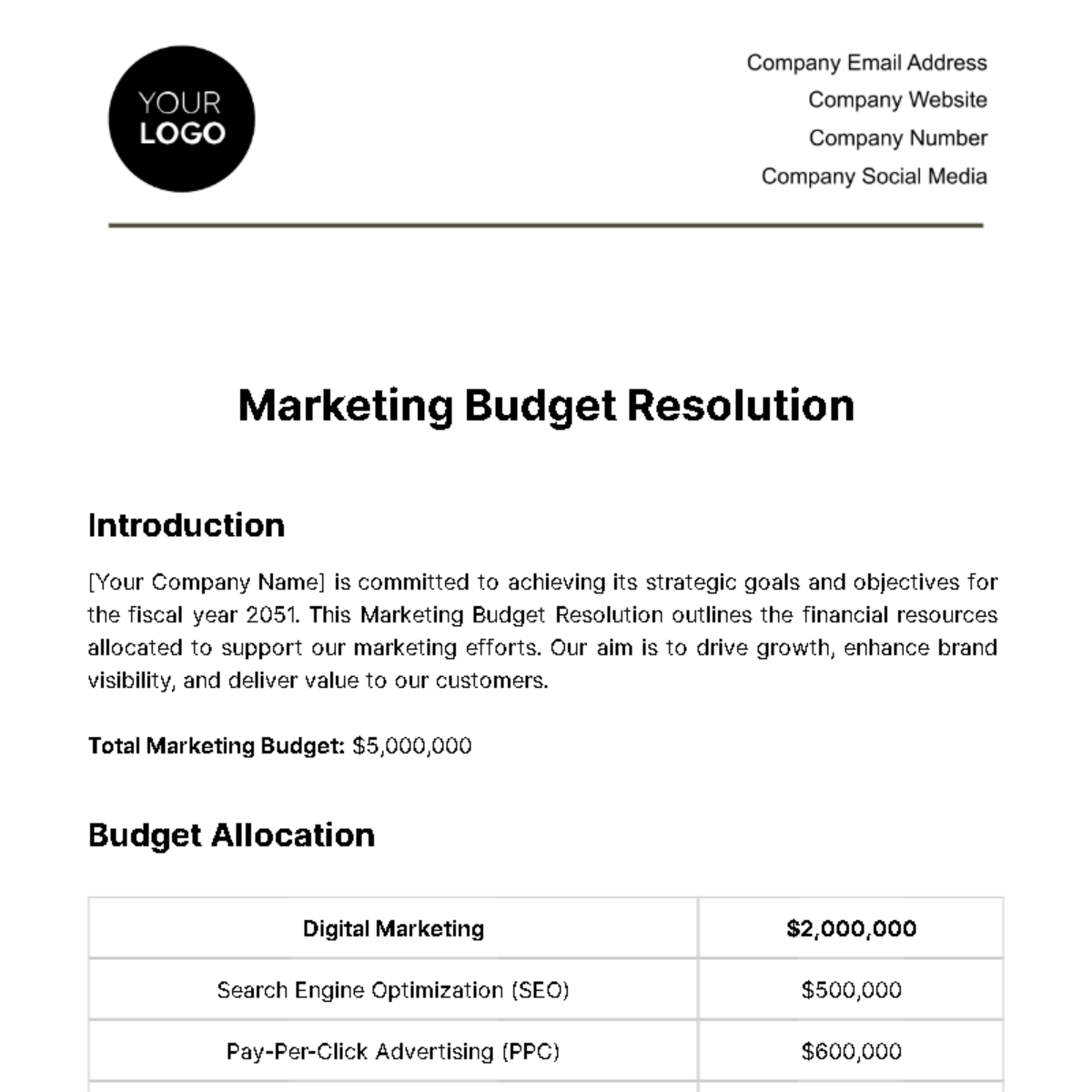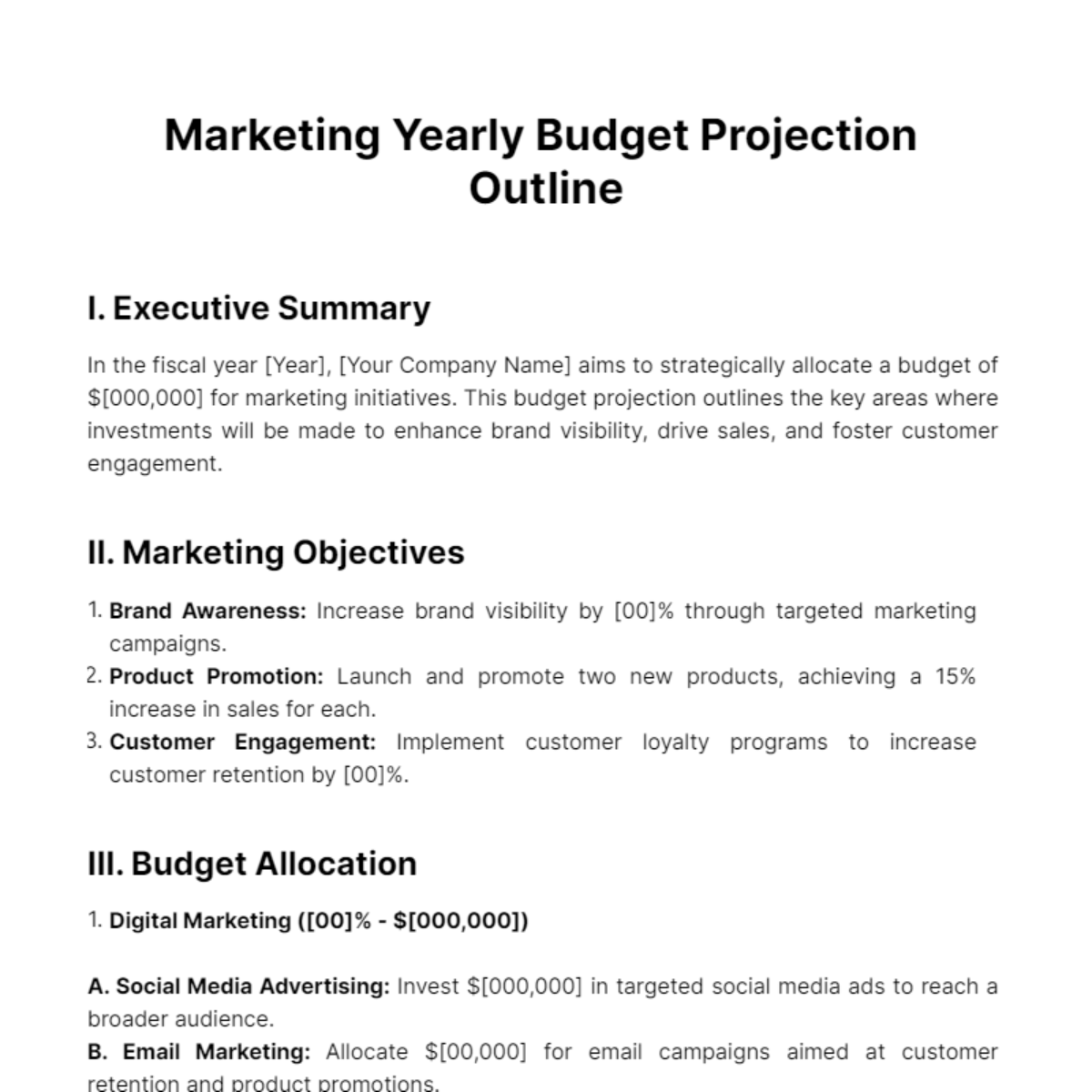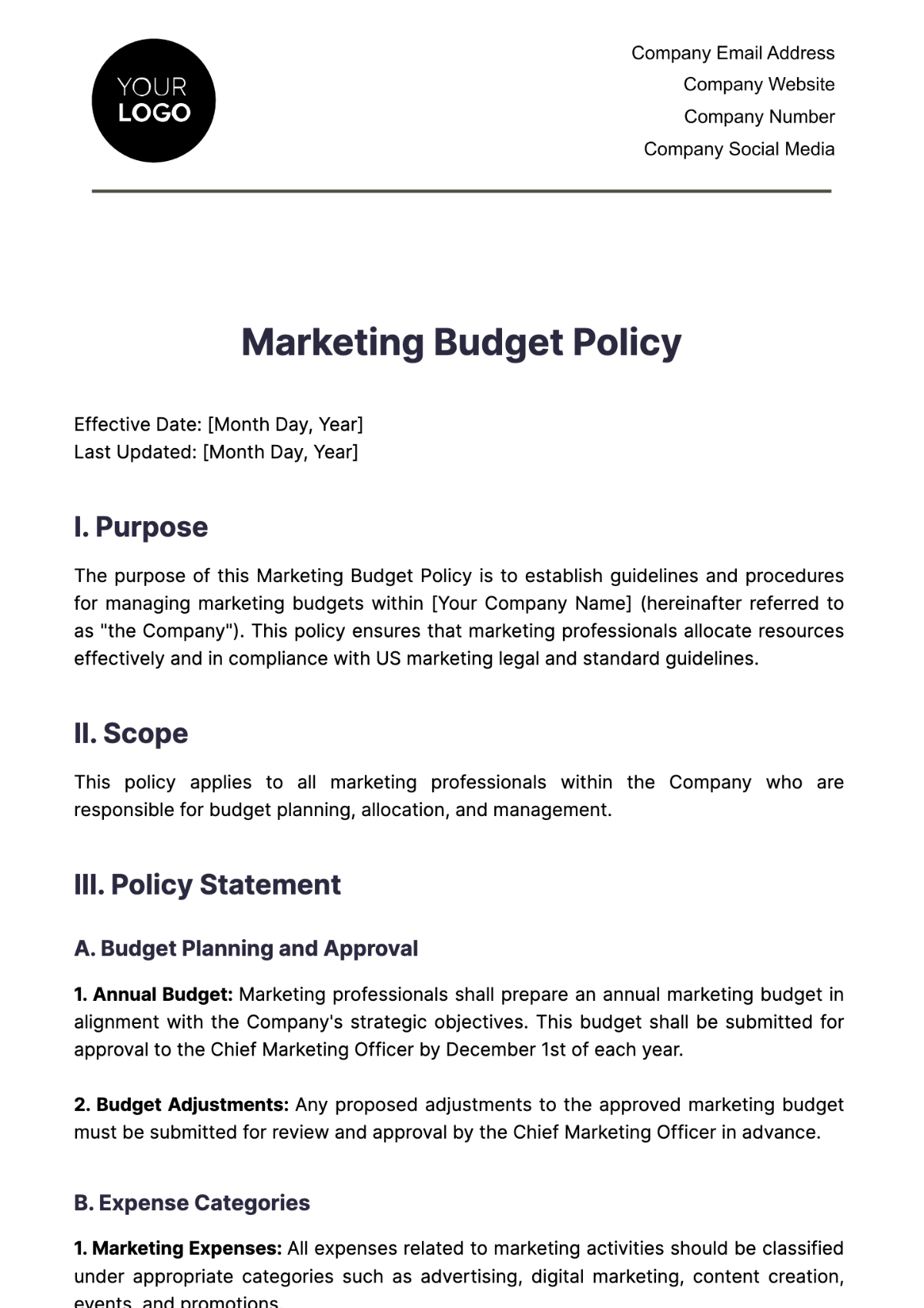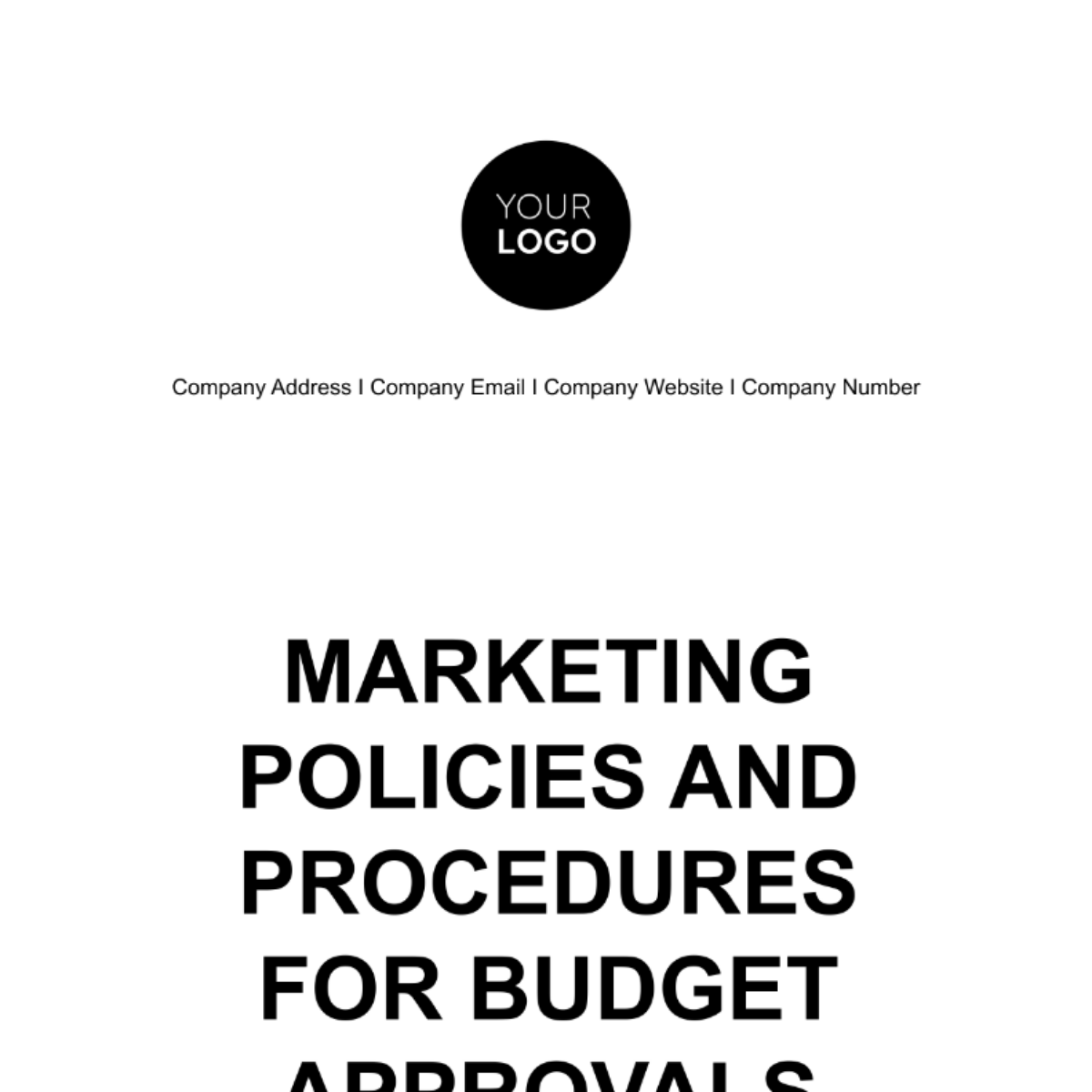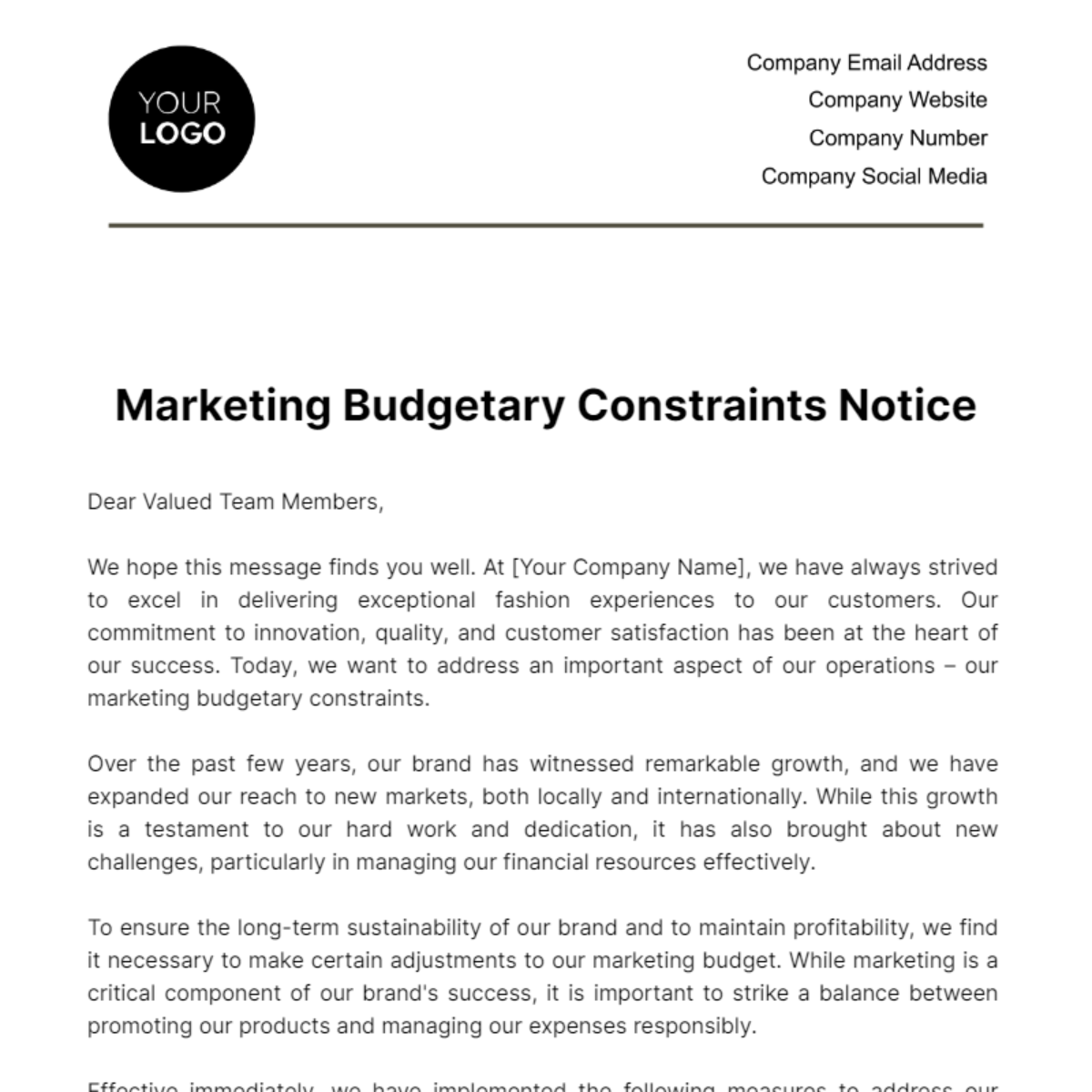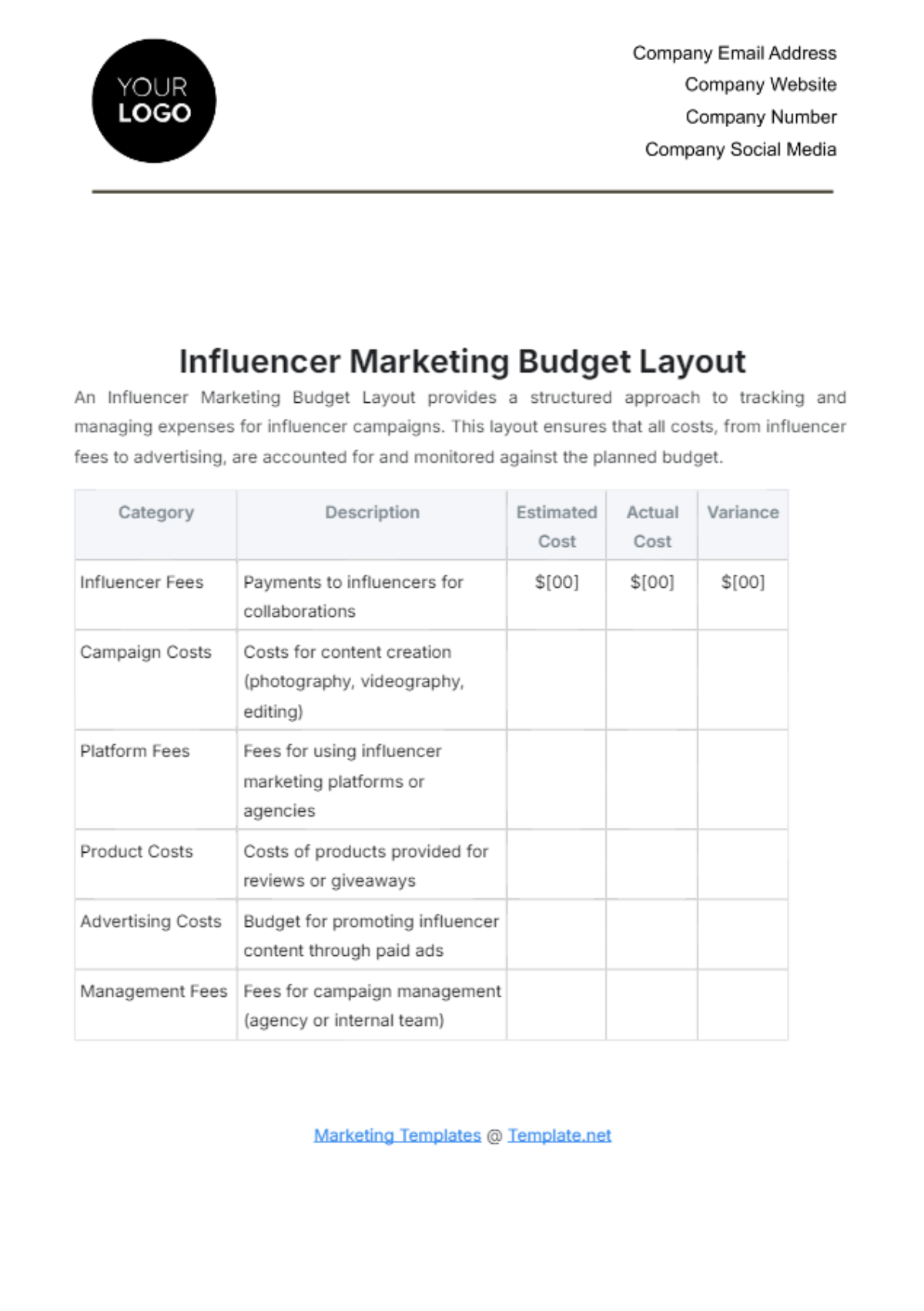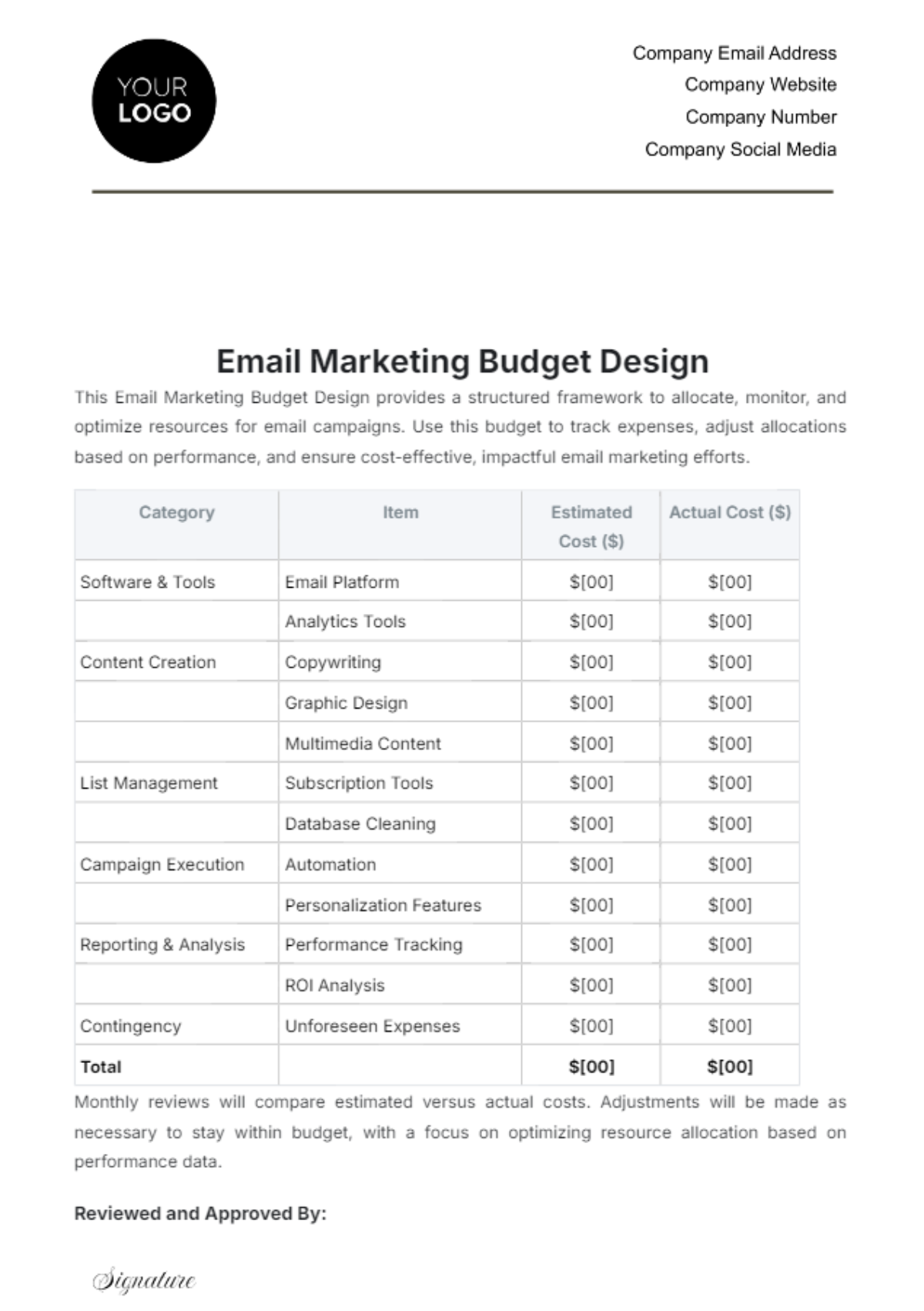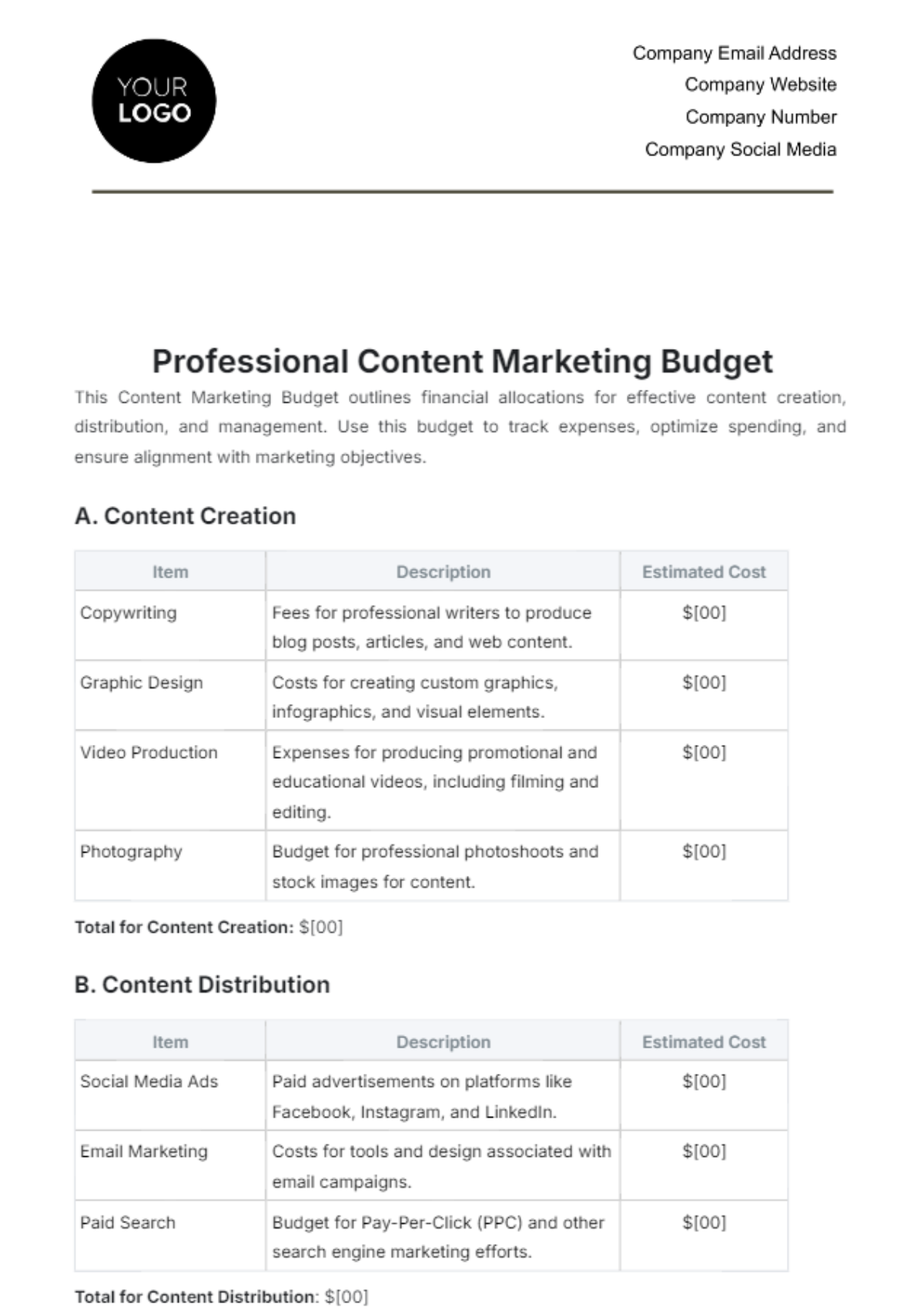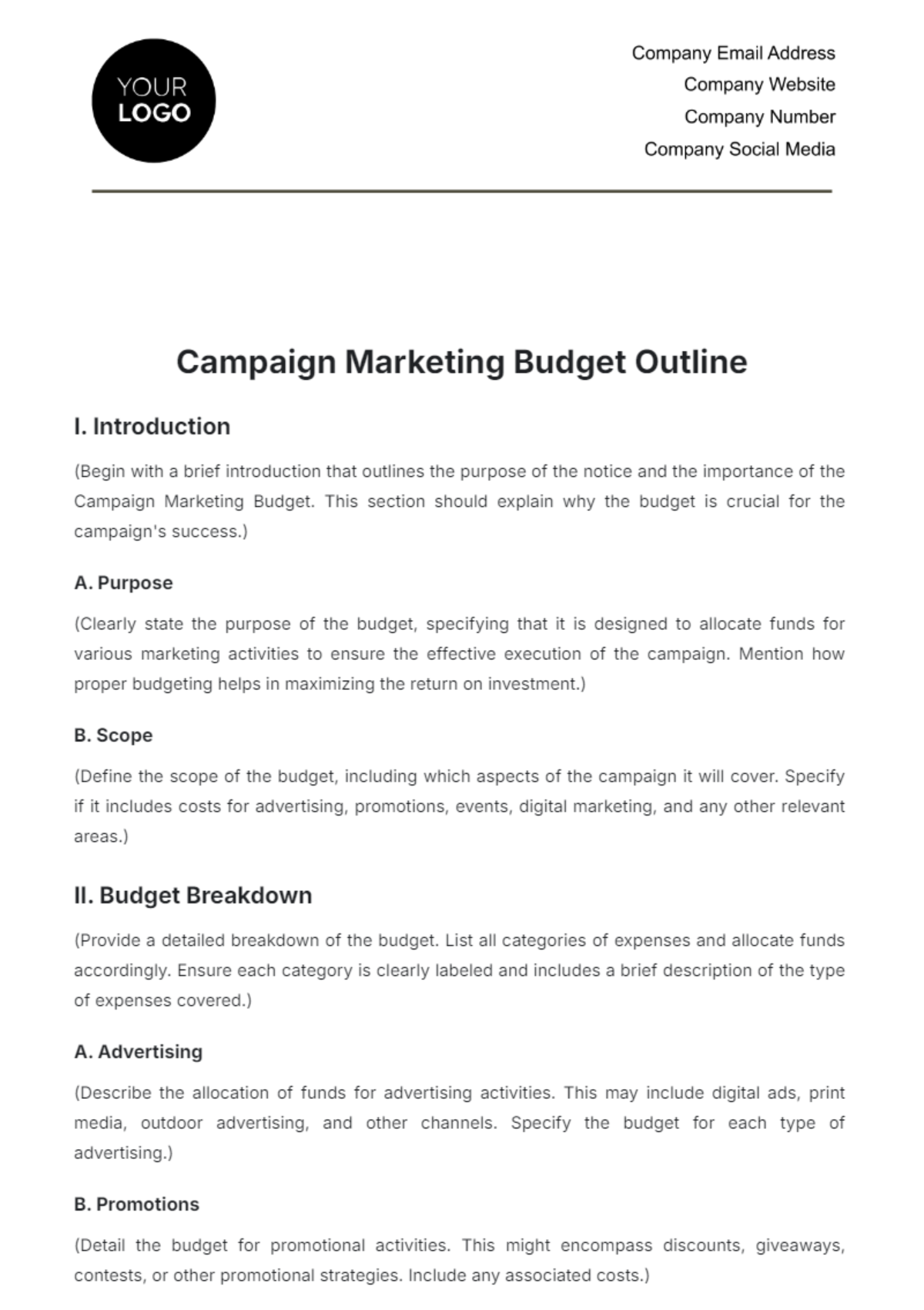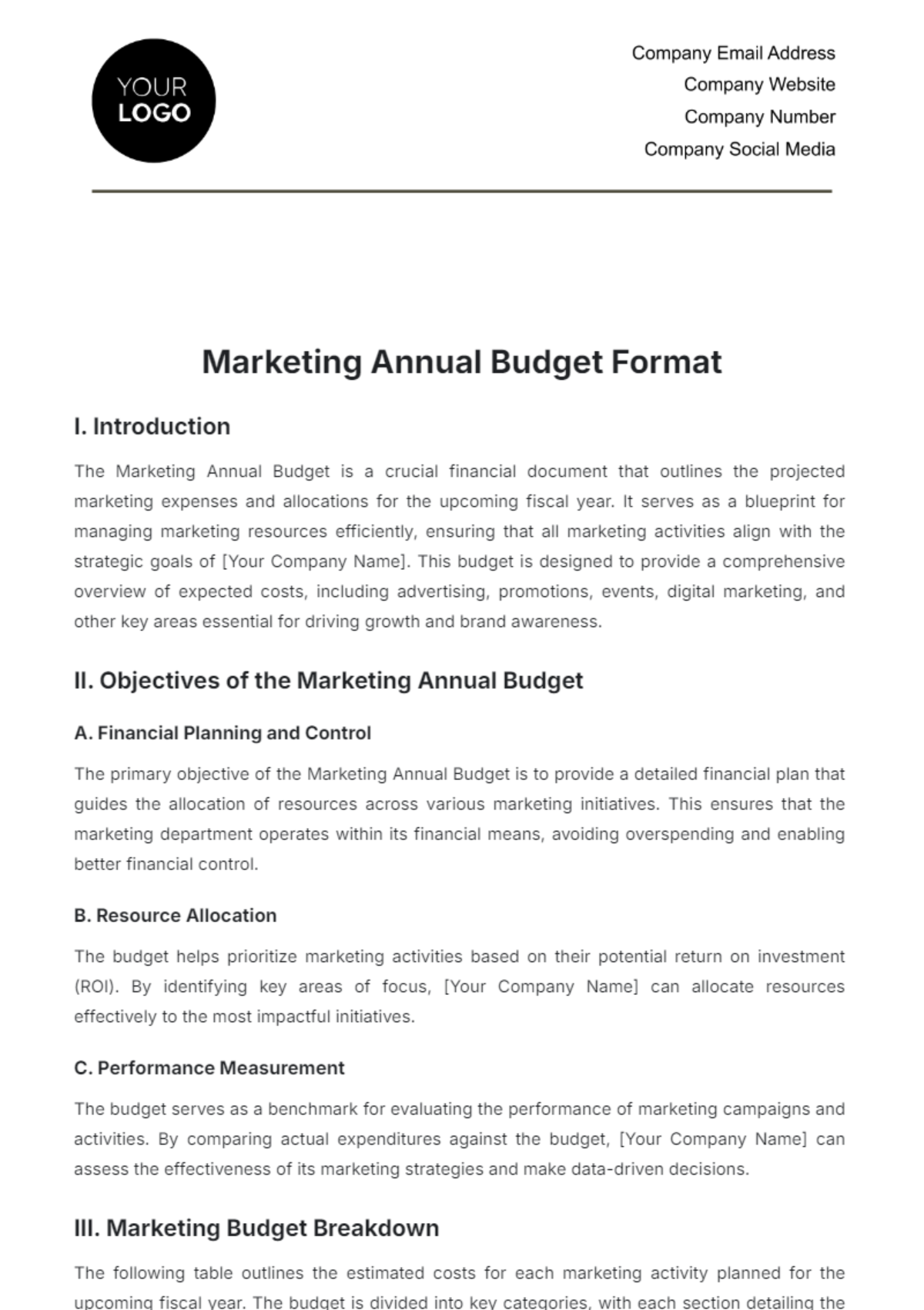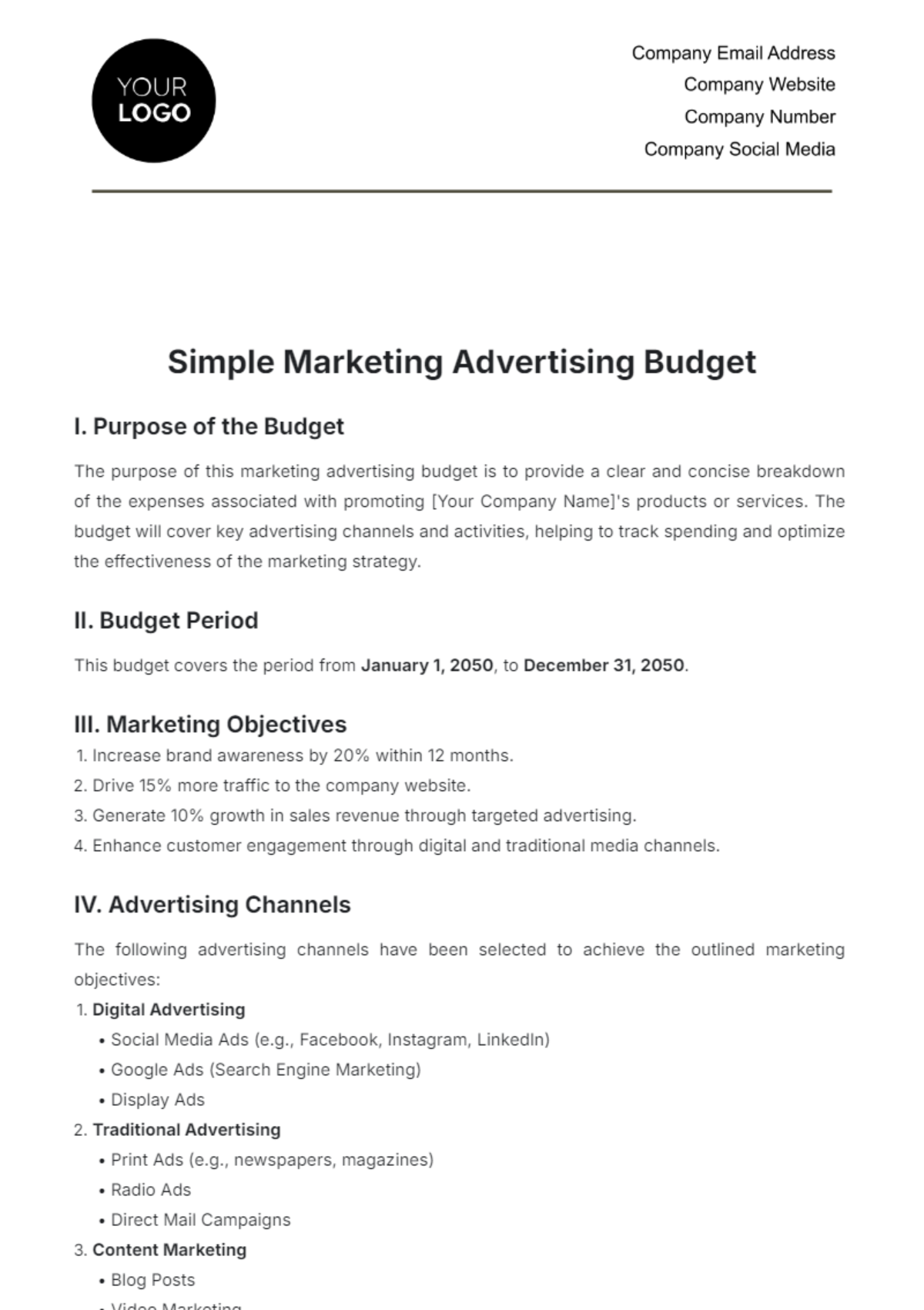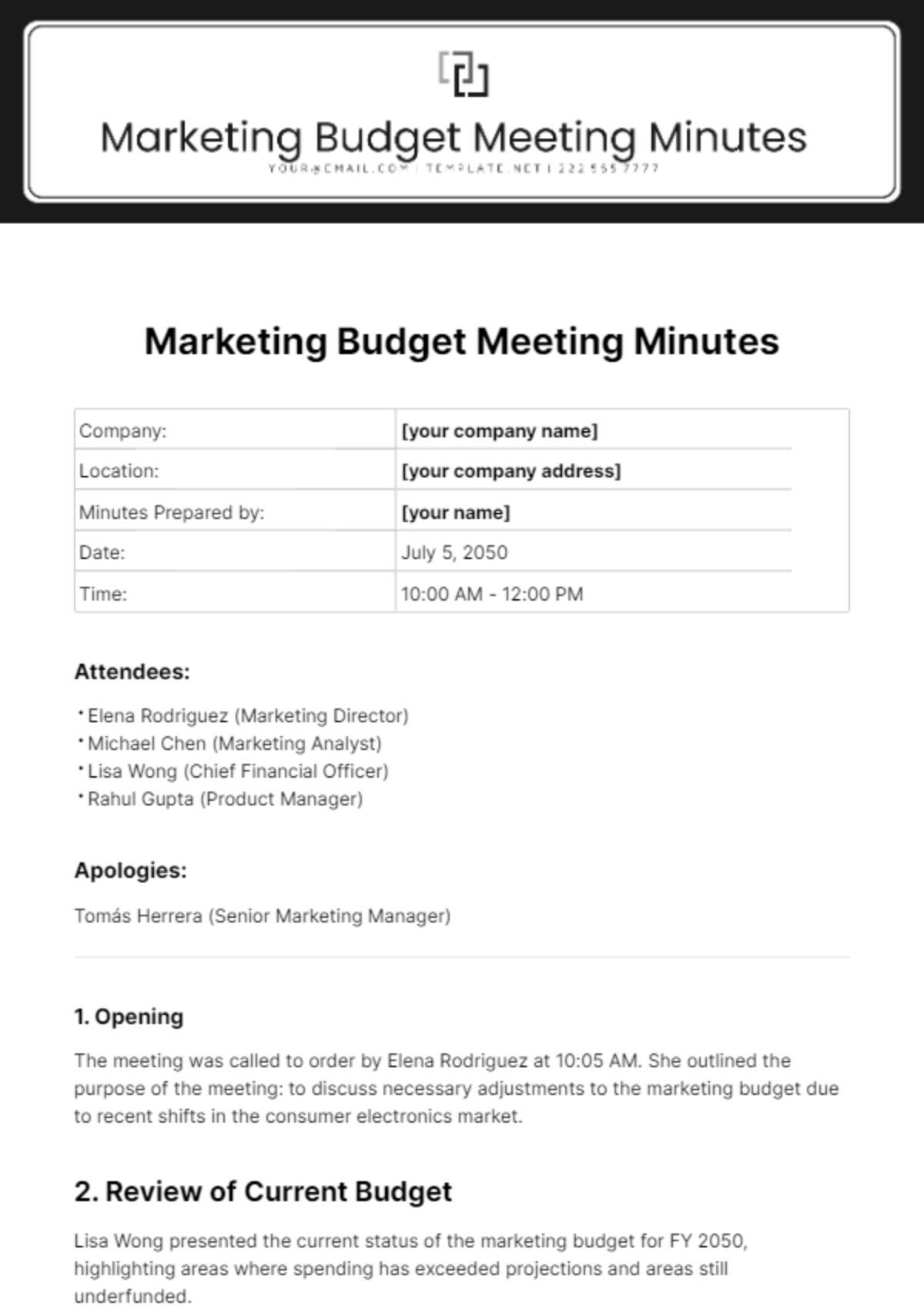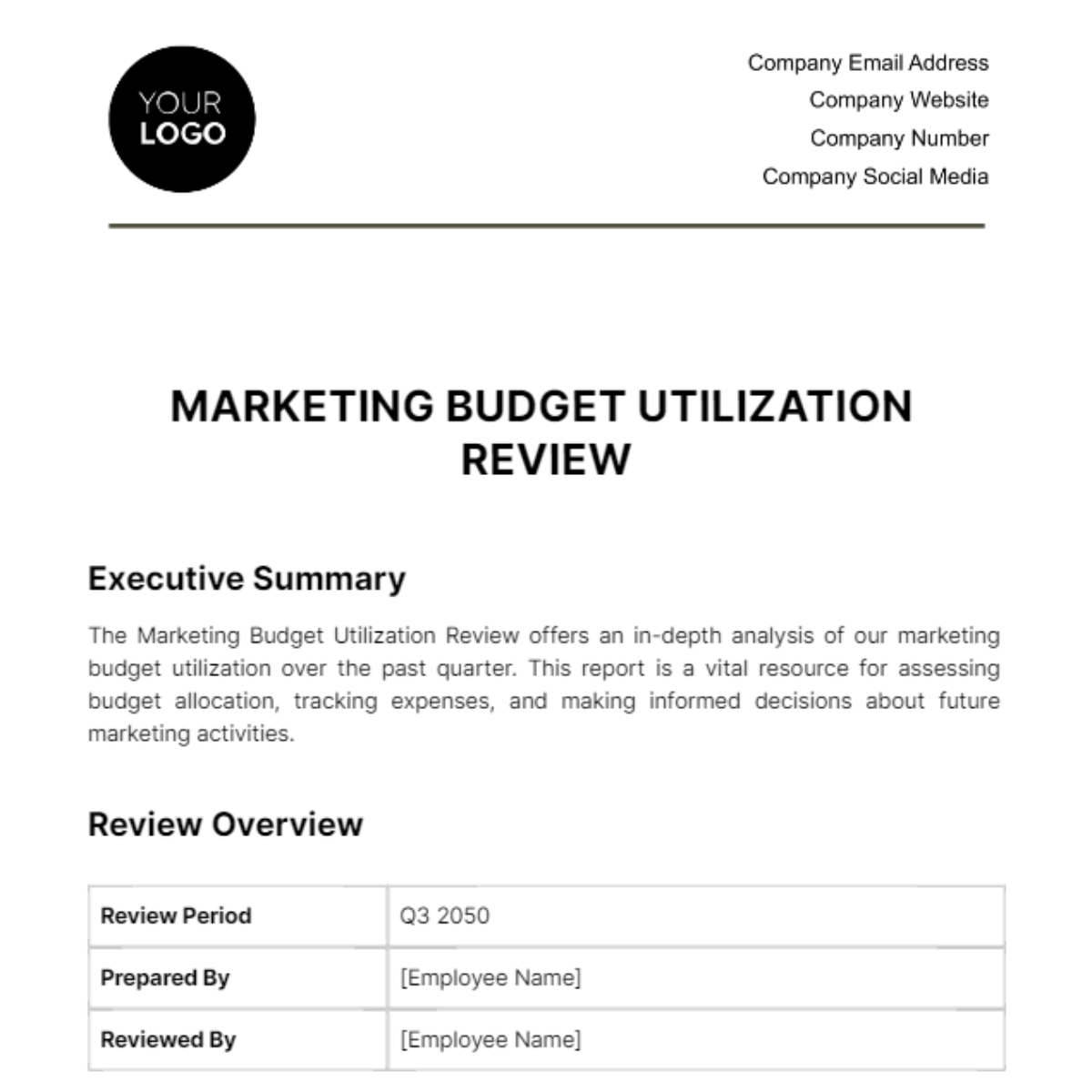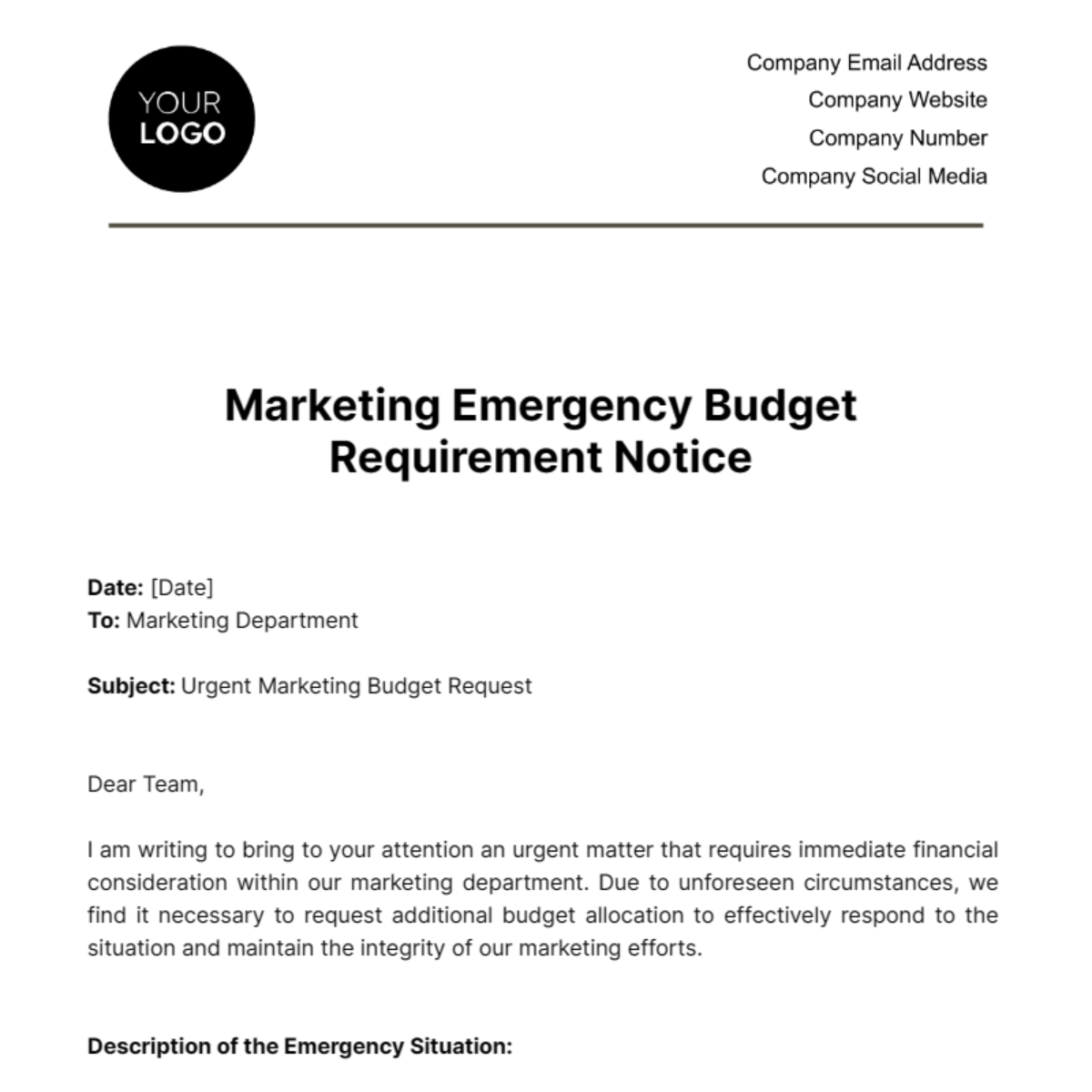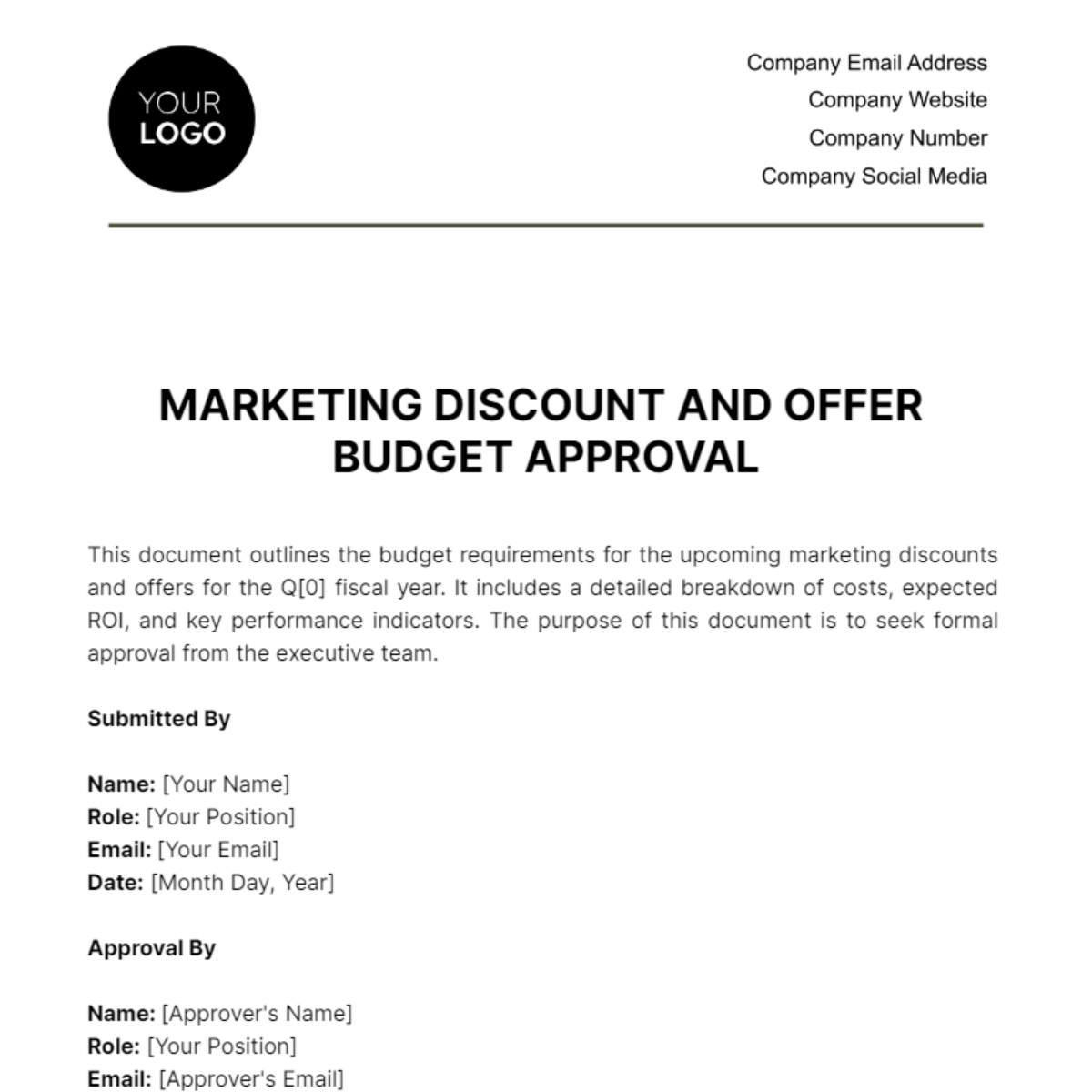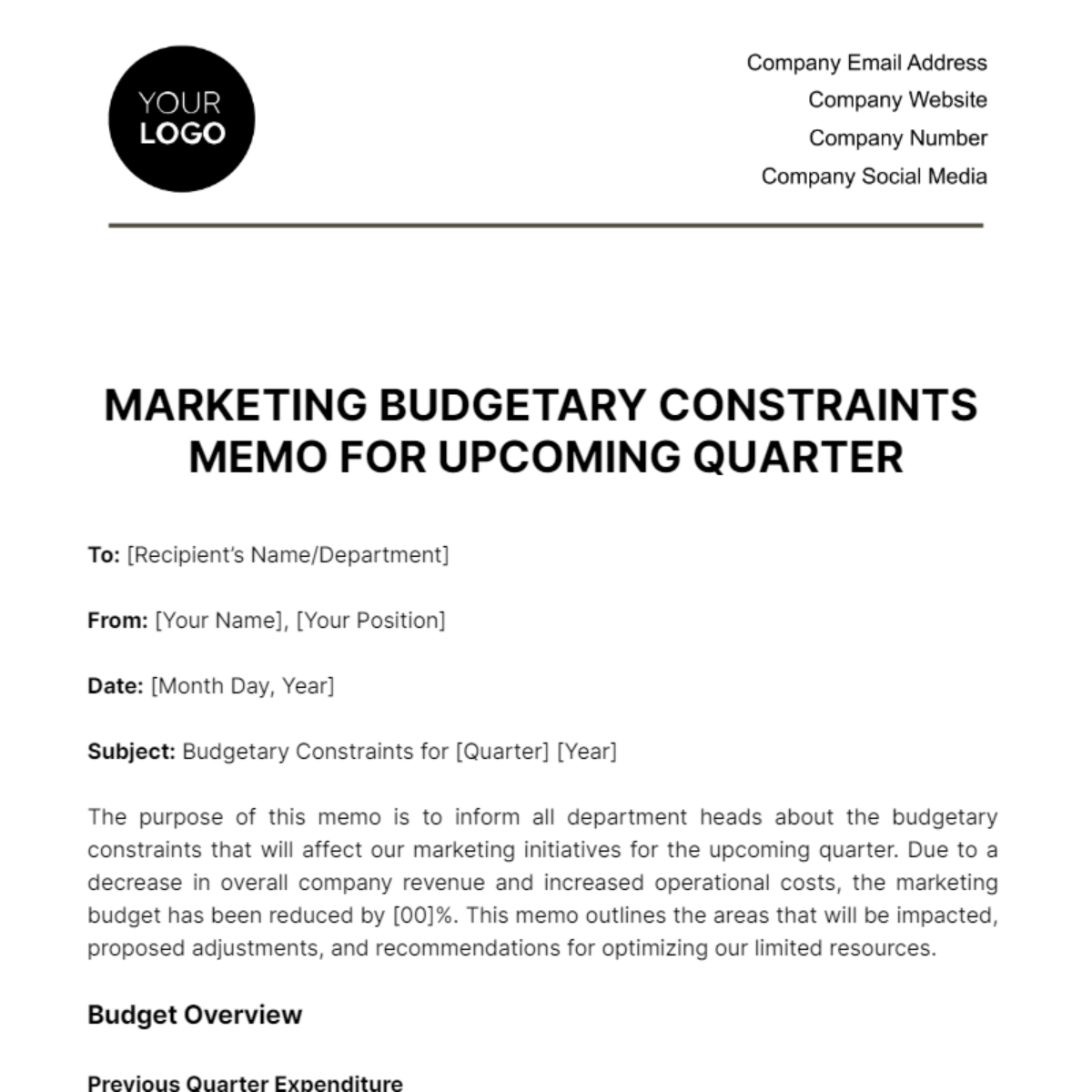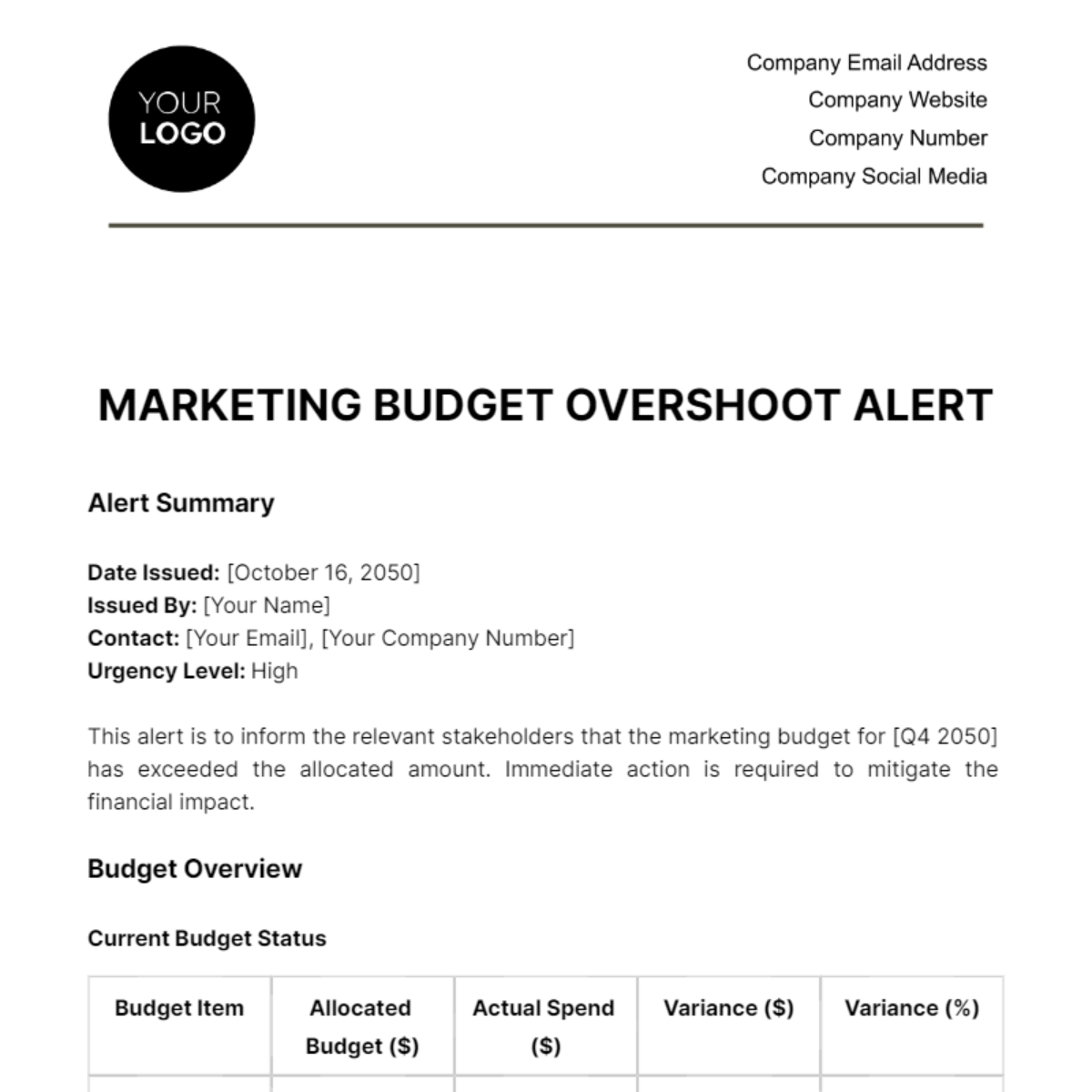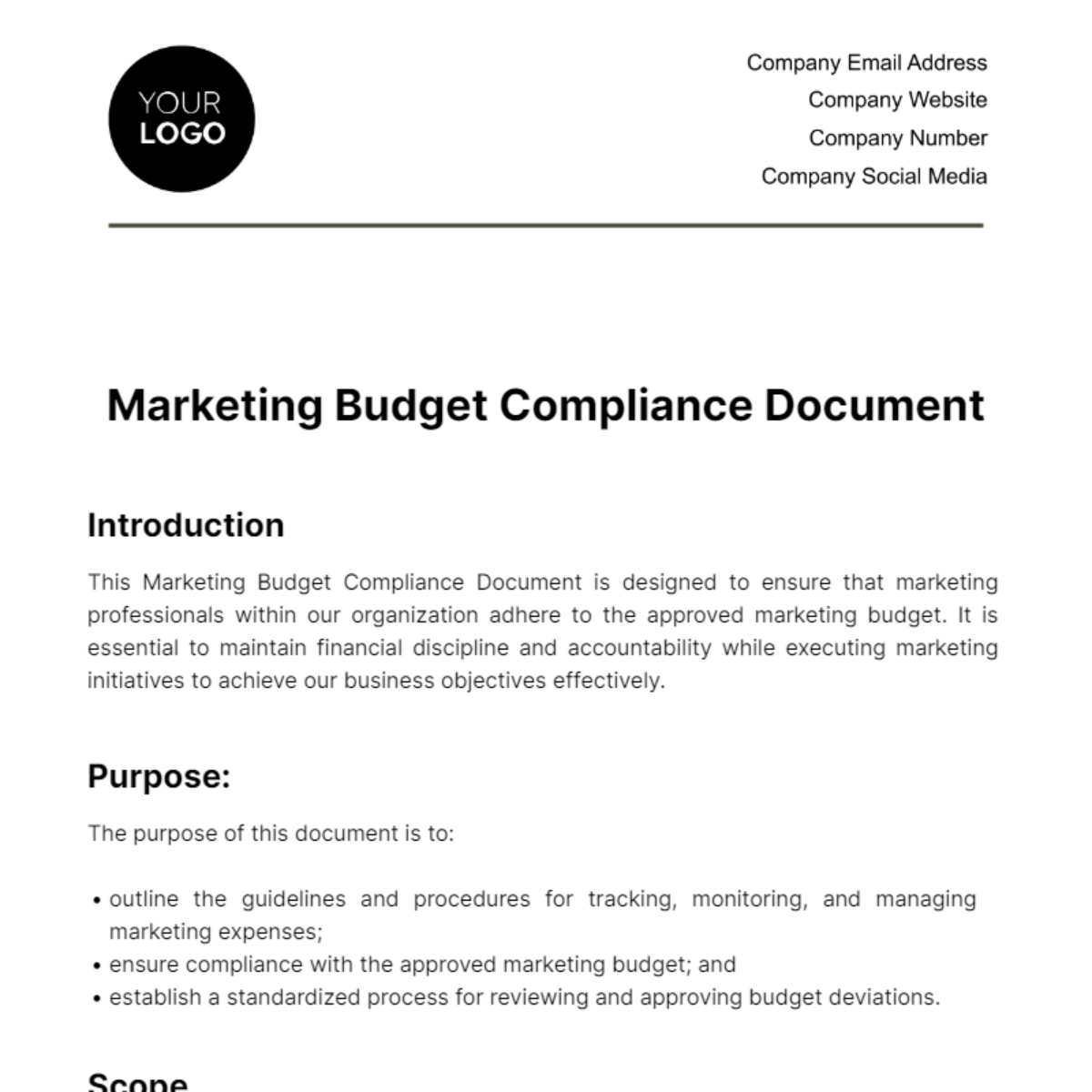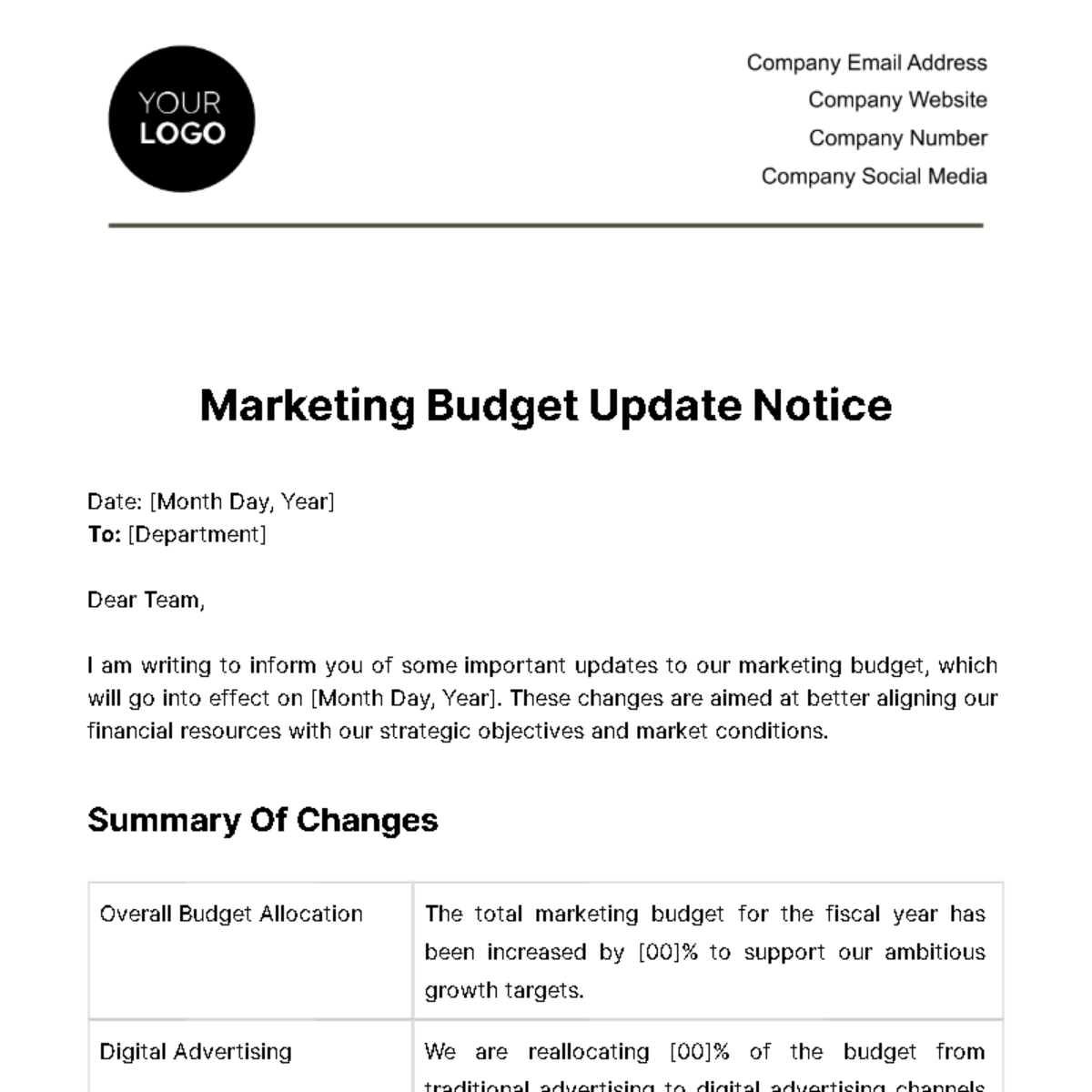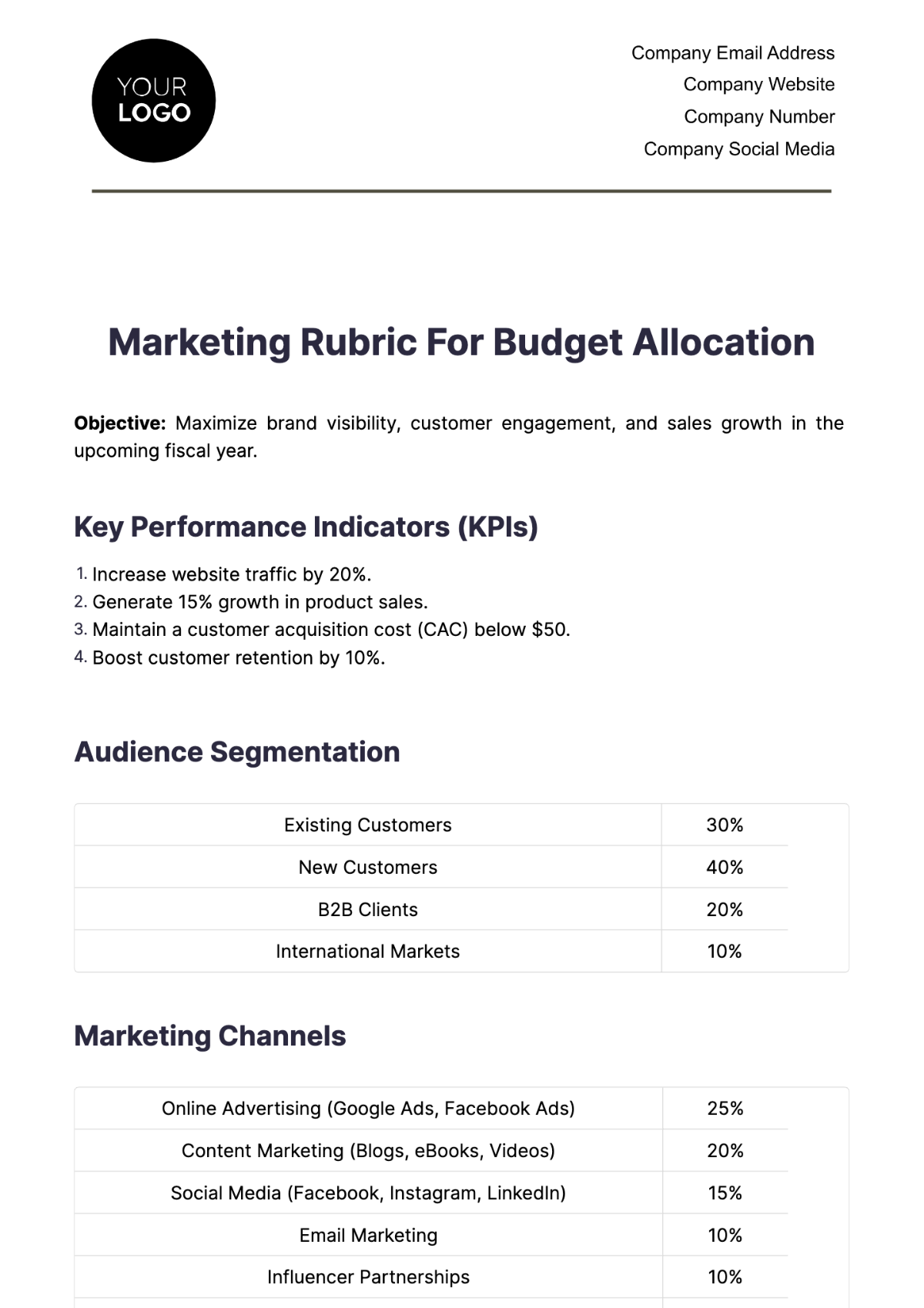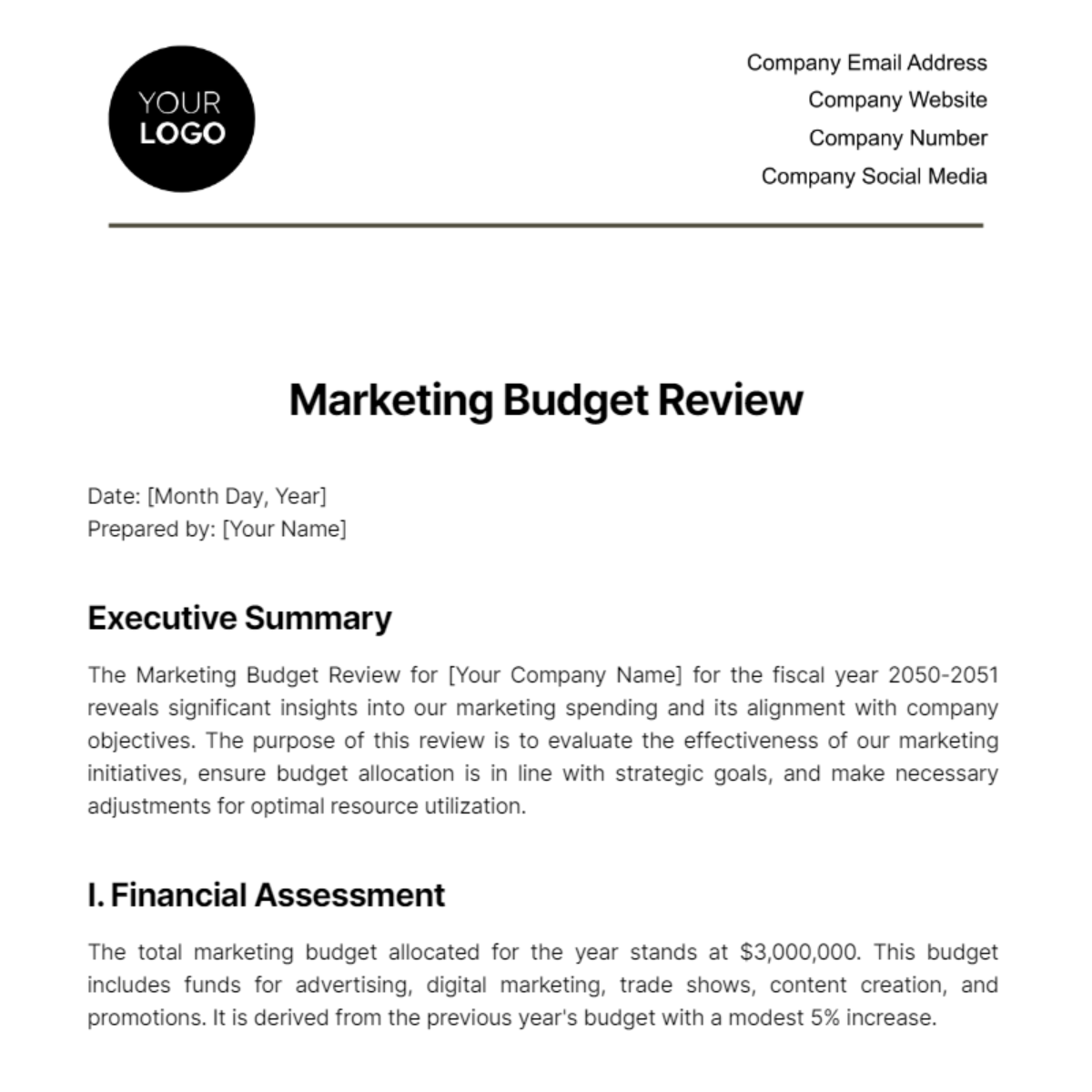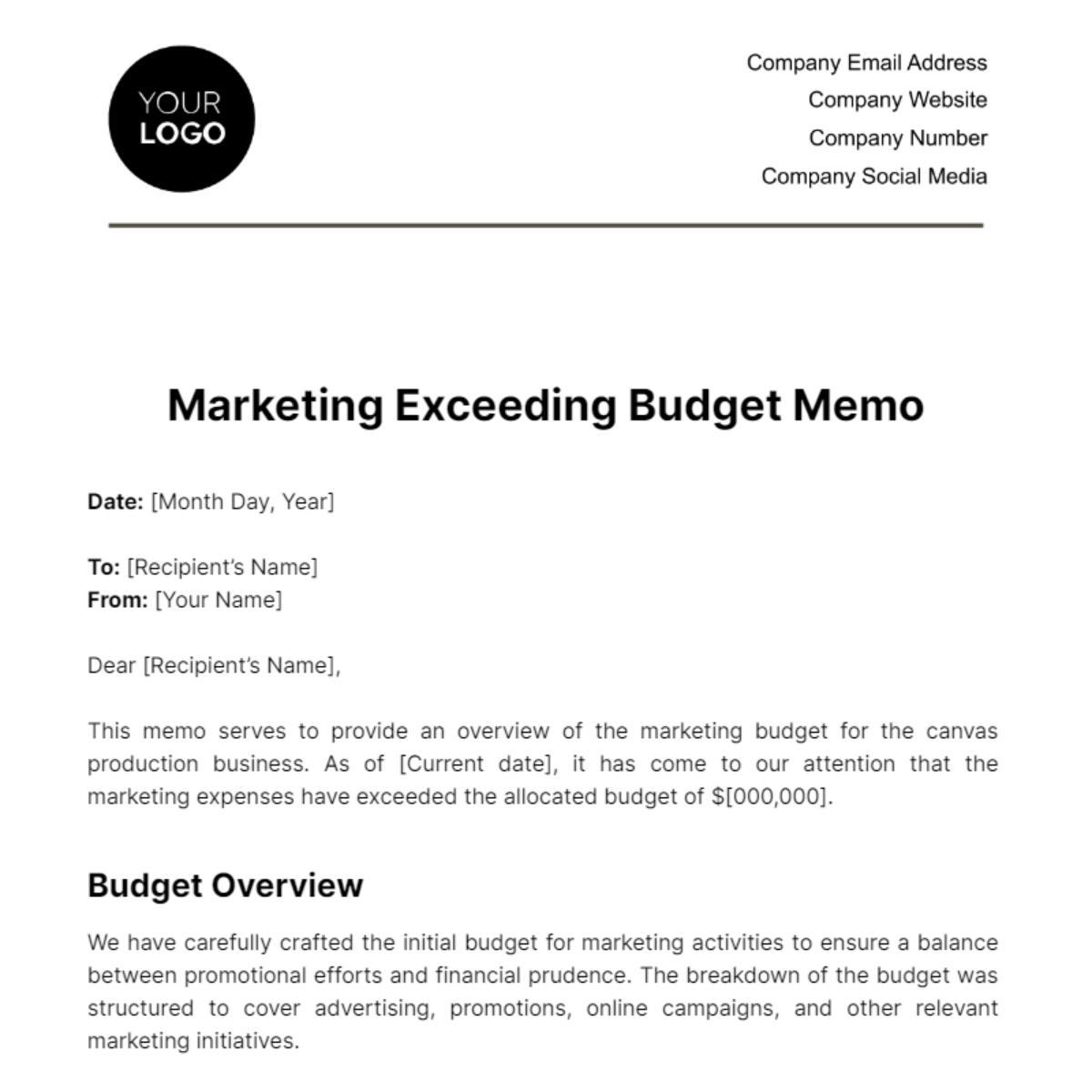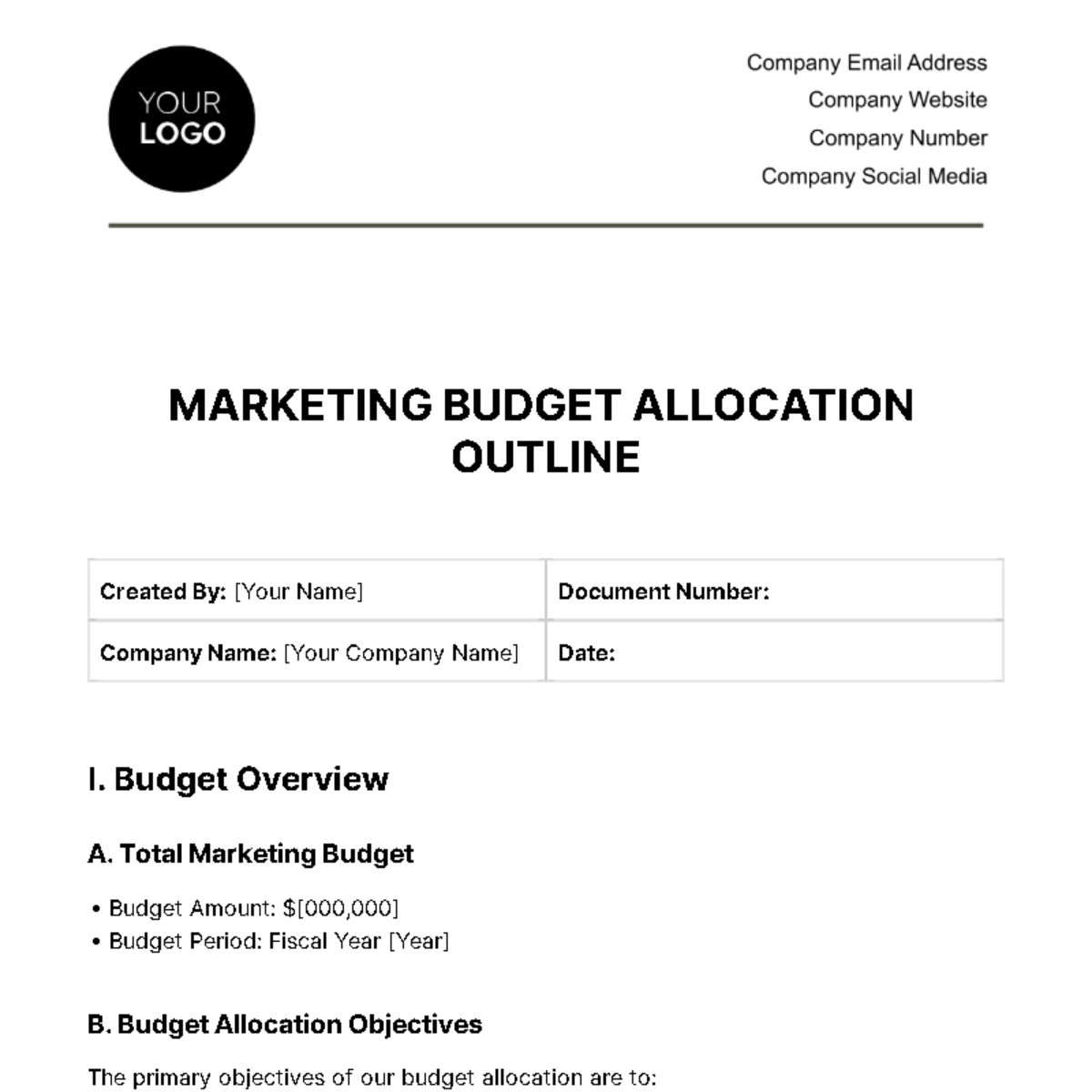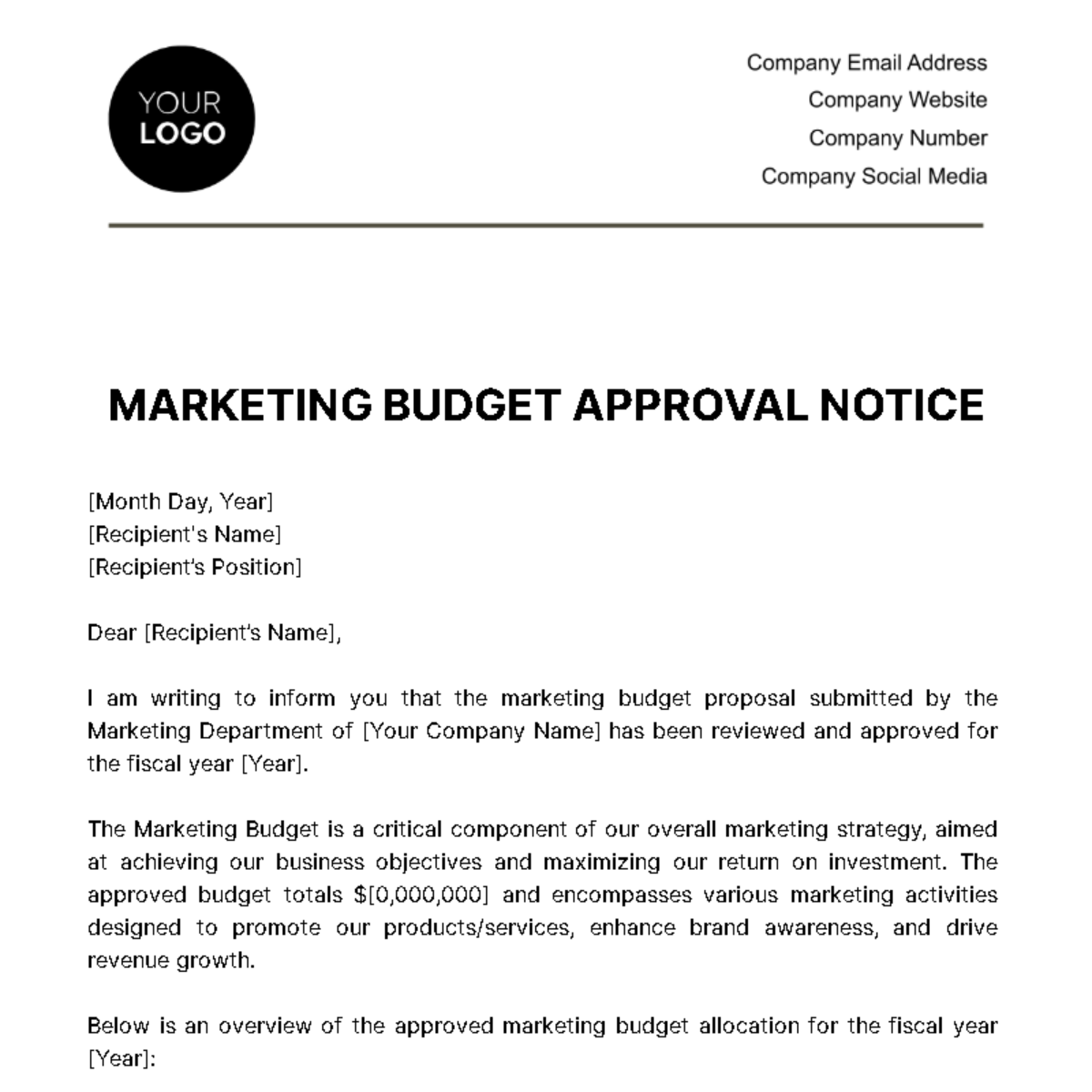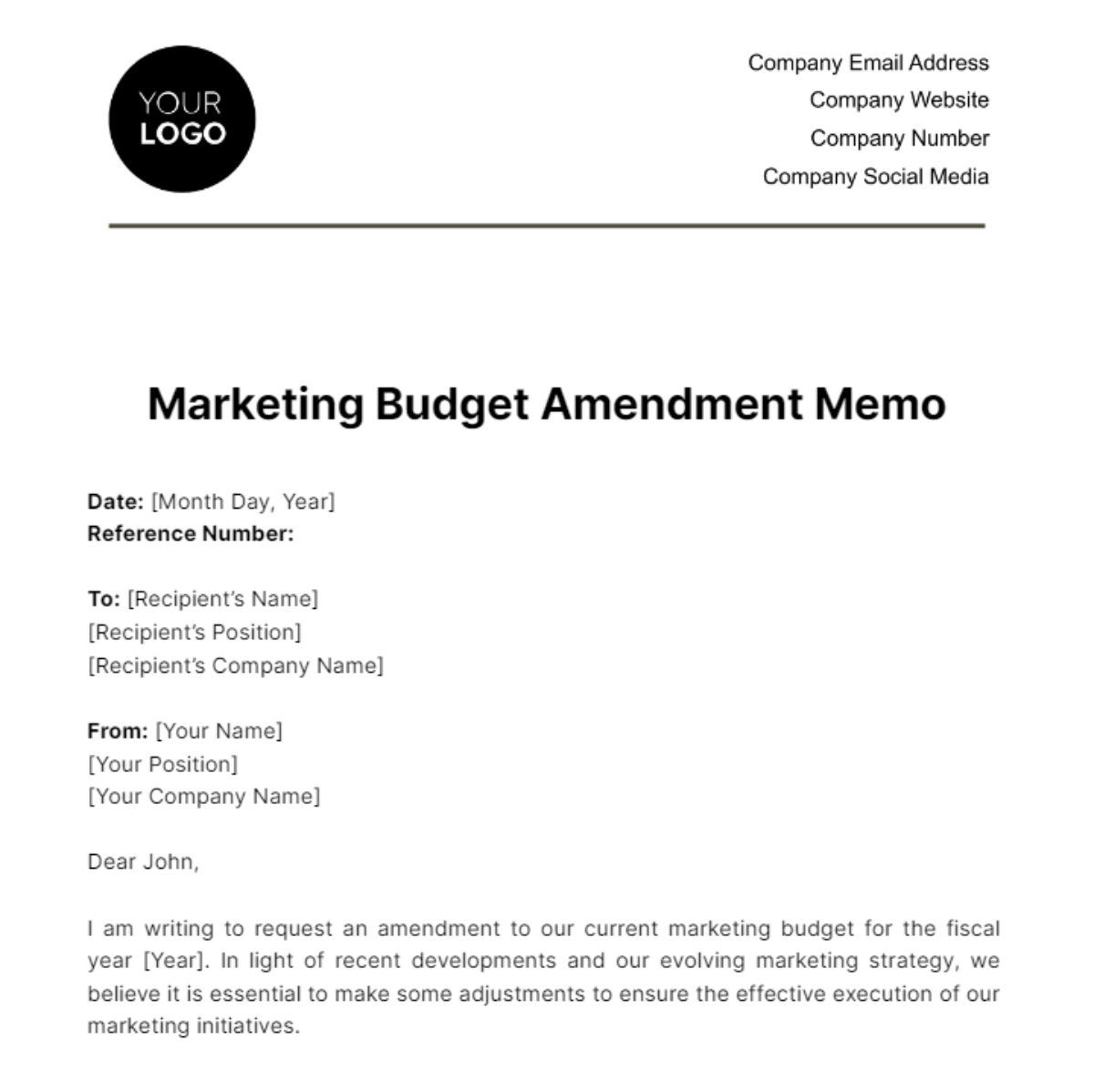Marketing Policies And Procedures For Budget Approvals
I. INTRODUCTION
At [Your Company Name], we recognize the pivotal role that marketing plays in driving our business's success and growth. To facilitate this essential function, it is crucial to establish clear and well-defined policies and procedures for budget approvals. The objective of this document is to provide a comprehensive framework for the structured allocation of resources to our marketing initiatives.
Effective budget approval processes not only ensure that financial resources are allocated efficiently but also support the alignment of marketing strategies with our organizational goals. With these policies and procedures in place, we aim to create a transparent, standardized, and accountable system for managing marketing budgets.
I. BUDGET PROPOSAL SUBMISSION
A. Submission Deadline
In preparation for each fiscal year, marketing departments and teams are required to submit their budget proposals at least 30 days in advance. This timeline provides ample opportunity for thorough review, discussion, and alignment with our company's broader financial planning.
B. Documentation
Budget proposals submitted should be comprehensive and detailed, encompassing a breakdown of anticipated expenses. This breakdown should extend to the specifics of planned marketing activities, campaigns, and projects. Each line item should be accompanied by a well-reasoned rationale, justifying its inclusion in the budget. Additionally, proposals must include a clear explanation of the expected return on investment (ROI) and key performance indicators (KPIs) to measure the effectiveness of the budget allocation.
C. Review and Feedback
To encourage collaborative refinement, submitted budget proposals will undergo review and feedback. This iterative process ensures that proposals are thoroughly scrutinized and align with our company's overarching objectives. Feedback will be provided within 5 days of proposal submission to allow for timely adjustments and refinements.
II. BUDGET REVIEW
A. Review Committee
A dedicated cross-functional budget review committee is responsible for assessing each budget proposal. The committee consists of key stakeholders from finance, marketing, and executive management, ensuring a comprehensive evaluation that aligns marketing spend with overall company objectives. The committee is tasked with:
Analyzing the proposed budgets to ensure they are aligned with [Your Company Name]'s strategic objectives.
Assessing the soundness of the financial assumptions and justifications provided in the budget proposals.
Ensuring that the marketing budgets are in line with current market conditions and industry benchmarks.
Reviewing historical data to identify trends and make informed decisions.
B. Evaluation Criteria
Budget proposals will be evaluated based on a set of criteria designed to assess their alignment with the company's goals and their feasibility. The criteria include:
CRITERIA | DESCRIPTION |
Strategic Alignment | The extent to which the proposed budget supports the overarching strategic goals of [Your Company Name]. |
Market Conditions | An assessment of the proposed budget's adaptability to current market conditions and competitive dynamics. |
Historical Data | The review of past marketing performance data to inform decisions. |
ROI and KPIs | An examination of the proposed return on investment (ROI) and key performance indicators (KPIs) to ensure they are realistic and attainable. |
C. Adjustments and Feedback
Upon reviewing the budget proposals, the committee may recommend adjustments to improve alignment, accuracy, or effectiveness. Feedback will be provided to the respective departments, and a collaborative process is encouraged to fine-tune the budget proposals. The goal is to ensure that the approved budgets are both realistic and capable of delivering maximum value and results.
III. BUDGET APPROVAL
A. Approval Process
The approval process involves a comprehensive review by the Budget Approval Committee, which consists of key decision-makers and stakeholders from various departments, including marketing, finance, and executive leadership. This cross-functional approach ensures that budget decisions align with the overall business strategy and that resources are allocated effectively to achieve desired marketing objectives.
B. Approval Criteria
The Budget Approval Committee will assess each budget proposal against a set of well-defined criteria, including but not limited to:
Alignment with [Your Company Name]'s overarching business goals and marketing strategies.
Market and industry research, taking into account current trends and competitive landscape.
Historical data and performance metrics from previous campaigns.
Return on Investment (ROI) projections for the proposed marketing initiatives.
Risk assessment and contingency planning for potential challenges.
Compliance with regulatory and legal requirements.
Scalability and flexibility to adapt to changing market conditions.
C. Transparent Decision-Making
The committee will maintain transparency throughout the approval process, providing clear communication regarding the reasoning behind their decisions. In cases where a budget proposal requires modification or is not approved, feedback and recommendations for improvement will be shared with the respective departments, fostering a constructive and collaborative approach to budget management.
D. Timely Decision
[Your Company Name] is committed to a timely budget approval process. After the designated committee reviews the budget proposals, a decision will be communicated to the respective departments within 5 days of the final approval meeting. This ensures that marketing teams have sufficient time to plan and execute their campaigns effectively.
E. Appeals Process
If a department disagrees with the decision of the committee, an appeals process is in place. The appealing department must provide additional data or reasoning to support their case. The committee will reevaluate the appeal and make a final determination.
F. Continual Improvement
[Your Company Name] recognizes the importance of continuous improvement in the budget approval process. Feedback from both approved and rejected proposals, as well as insights gained from performance data, will be used to refine the process, ensuring that it remains dynamic and responsive to changing market conditions.
G. Final Approval Notification
Following the committee's final approval, departments will receive official budget approval notifications, outlining the approved budget, any recommended modifications, and the conditions or expectations attached to the allocation. This clear communication allows departments to commence their marketing activities with a full understanding of the approved budget's scope and limitations.
H. Annual Budget Approval Meeting
Annually, [Your Company Name] will conduct an in-depth budget approval meeting, during which the committee reviews and approves the marketing budgets for the upcoming fiscal year. This comprehensive meeting provides an opportunity for strategic alignment and resource allocation at the highest level.
IV. IMPLEMENTATION AND TRACKING
A. Budget Allocation
After receiving final approval, the allocated budgets will be distributed to the respective marketing departments or teams responsible for the execution of marketing activities. Each department head or team lead will be responsible for managing their budget effectively.
B. Quarterly Review
Marketing teams must conduct quarterly reviews to ensure budget adherence and assess performance against predetermined key performance indicators (KPIs) and targets. During these reviews, teams will:
Analyze actual expenses and compare them to the approved budget.
Evaluate the ROI and effectiveness of marketing initiatives.
Identify areas where adjustments or optimizations may be needed.
Discuss any unexpected challenges or opportunities that may require budget reallocation.
C. Adjustment Proposals
Should any department identify the need for adjustments in their budget allocation based on performance or changing market conditions, they must submit an adjustment proposal for review. The proposal should include:
Justification for the adjustment, backed by data and analysis.
Proposed changes to budget allocations.
Expected impact on the department's goals and overall business objectives.
D. Approval of Adjustments
The budget adjustment proposals will be reviewed by the budget review committee. The committee will assess the merits of the proposals, considering their alignment with [Your Company Name]'s strategic objectives and the overall financial health of the organization. Adjustments will be approved or denied accordingly.
E. Quarterly Performance Reports
Following the quarterly reviews and any necessary budget adjustments, each department must submit detailed performance reports that include:
An overview of the key accomplishments and challenges during the quarter.
A breakdown of expenses and how they align with the approved budget.
Analysis of the achieved KPIs and the impact on the company's overall marketing goals.
V. BUDGET AMENDMENTS
A. Request for Amendments
Departments may request budget amendments when faced with unforeseen circumstances or changes in the marketing landscape that necessitate adjustments to the approved budget. Such circumstances may include market fluctuations, emerging opportunities, or unexpected challenges that require financial reevaluation.
B. Approval Process
All requests for budget amendments should be submitted using the designated form, outlining the rationale, anticipated impact, and the specific adjustments needed. This request should be accompanied by an analysis of the changes in market conditions or the business environment that justify the amendment.
C. Review and Assessment
The budget review committee, in consultation with department heads, will thoroughly review each budget amendment request. The committee will assess the validity of the request, its alignment with strategic objectives, and the impact on overall budget allocation.
D. Approval
Once the review committee reaches a decision, budget amendments that are approved will be forwarded to the committee for final approval. The committee will deliberate and provide a final decision within 5 days.
E. Implementation
Approved budget amendments will be implemented immediately, with allocated funds adjusted according to the approved changes. The department seeking the amendment is responsible for ensuring that resources are reallocated effectively and promptly to meet their adjusted goals.
F. Documentation and Reporting
All approved budget amendments and their justifications will be documented and reported in a transparent manner. This documentation will include details of the amendment request, the review process, and the final approval decision.
G. Communication
Upon approval of the budget amendment, all relevant departments and stakeholders will be promptly informed of the changes, ensuring that the team is aligned with the updated budget.
H. Quarterly Review
Budget amendments will be subject to quarterly reviews to evaluate their impact and effectiveness in addressing the initial issues. If circumstances have changed, further adjustments may be proposed, following the same budget amendment process outlined above.
I. Audit and Compliance
The budget amendment process and its outcomes will be subject to internal audit and compliance checks to ensure transparency, accuracy, and adherence to company policies.
VI. BUDGET REPORTING
A. Regular Reporting
Marketing departments will provide regular reports on budget utilization and performance as follows:
Monthly Reports: A detailed breakdown of expenses, including comparisons with the approved budget, explanations for significant variances, and progress on key performance indicators (KPIs).
Quarterly Reports: An in-depth analysis of the budget's quarterly performance, highlighting any adjustments made to align with changing business needs and market dynamics.
Annual Reports: An annual summary of the entire fiscal year, consolidating the performance data, ROI achieved, and a comprehensive review of lessons learned for future planning.
B. Exception Reporting
Exception reports are crucial for monitoring unexpected developments and significant deviations from the approved budget. These reports will be submitted under the following circumstances:
Budget Overruns: When a department exceeds its budget allocation by a predefined threshold, a comprehensive report must be submitted detailing the reasons, impacts, and proposed corrective actions.
Significant Variance: If any budget line item varies significantly from the approved amount, a report explaining the cause, implications, and any required adjustments will be submitted promptly.
Market Changes: In the event of unforeseen market changes, which could impact budgetary assumptions significantly, a report outlining these changes and their potential effects will be submitted, along with recommendations for adjusting the budget to align with these developments.
VII. REVIEW AND REVISION
A. Annual Review
An annual review of these policies and procedures is essential to ensure they remain current and effective. During this review, the committee will assess the performance and relevance of the existing policies, seeking input from key stakeholders across departments.
B. Periodic Revisions
To adapt to changing business conditions and evolving market dynamics, these policies and procedures will undergo periodic revisions as necessary. Changes may be prompted by shifts in marketing trends, regulatory requirements, or internal organizational changes. The committee will facilitate revisions, collaborating with department heads to ensure that the policies continue to meet the specific needs of [Your Company Name].
C. Communication of Revisions
Upon making any revisions to these policies and procedures, all relevant stakeholders will be promptly informed. The committee will ensure that updated versions are accessible to all departments, and a notification will be sent to the respective heads of the marketing teams.
PROCESS SUMMARY FLOWCHART
These Marketing Policies and Procedures for Budget Approvals at [Your Company Name] are firmly rooted in the principles of fiscal responsibility, strategic planning, and adaptability. This standardized process is designed to enhance budget allocation, resource management, and alignment with the overall objectives of our organization.
In doing so, we empower our marketing teams to make data-driven decisions, maximize the impact of their budgets, and drive the achievement of [Your Company Name]'s strategic goals. The flexibility of these policies ensures that they are not static, but dynamic and responsive to the ever-changing landscape of the business environment.
Date: [Month Day, Year]
Document Version: 1.0

